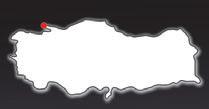












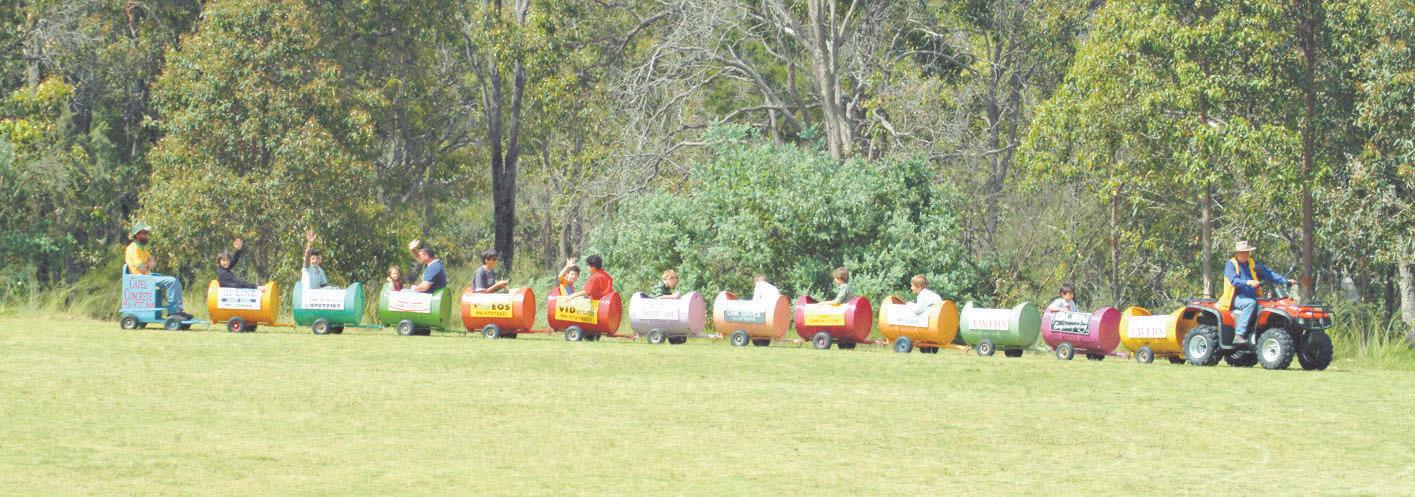
innocence: Students of St Mary’s Catholic Primary School join in the fun during celebrations for the 90th anniversary of the Donneybrook school,
ness providing rolled lead sheeting when they were in their forties, finally selling it when they decided to retire.
God
Pagoda Ballroom, the first book to be published by the paper as far as he is aware.
The book is on sale from this week through The Record or available directly from its author.
The intriguing title hints at the book’s central message – the importance of trusting in God completely – and the account it tells of how a husband and wife embarked on the foundation of their business venture on that basis. The Smiths started their busi-
Upon announcing to a friend that they were going to start their own business the reply was blunt: “You’re mad, starting out when the rest of us are thinking of retiring. I know what you’re going to say but God doesn’t put dinner on the table.”
Nevertheless, the couple felt so strongly that they were doing what God wanted, they desided to name it L.O.G. Pty. Ltd., short for ‘Love Of God’ as a mark of their trust in God to lead them wherever He wished.
In a highly competitive commercial world they achieved remarkable success which Pauline and her husband Laurie

attribute to having “spread their business difficulties before the Lord.”
The paperback was launched at the Pagoda by the Smith’s lifelong friend, Brian Peachey, who also edited the manuscript and advised on its printing as well.
Throughout, the story of the Smiths’ venture is illustrated with numerous examples of how they followed wherever God led, even when there appeared to be no rhyme or reason to what they believed they were being asked to do.
At the launch Mr Rosengren said he was delighted to finally see the finished product; until that moment he had only seen it in manuscript form.
The publication by The Record was also auspicious for another reason from his per-
spective; The Record will shortly be opening a bookshop with a strong focus on families, marriage and young people as well as excellent resources for the baptised in many areas of life and faith.
Since first being approached in relation to the publishing of God Owns Our Business Also he had seen the manuscript as fulfilling exactly these ideals and goals.
The book, which retails for $15 plus postage, also carries a foreword written by Frank Carr, the chairman of the state services committee of the Catholic Charismatic Renewal in WA, while its cover has been designed by Patrick Horgan.
Anyone interested in becoming a volunteer at The Record’s bookshop can contact the editor on (08) 9227 7080.
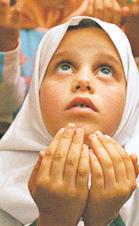
Dialogue between Catholics and Orthodox can be fruitful, though many hurdles still exist on the road to Eucharistic communion, says a leading prelate.
Bishop Hilarion Alfeyev of Vienna and Austria, representative of the Russian Orthodox Church to the European Institutions, commented in this interview with Zenit on Benedict XVI’s forthcoming visit to Turkey and other pressing issues.
Q: Soon Pope Benedict XVI will visit Turkey, because he wants to strengthen the bonds between Rome and Constantinople. What is the significance of this journey as to the Orthodox-Catholic dialogue?
Bishop Alfeyev: It is to be hoped that this visit will further improve the relations between the Churches of Rome and Constantinople. These two churches broke communion with one another in 1054, therefore it makes them especially responsible to restore unity. In speaking about the possible impact of this meeting on Orthodox-Catholic relations as a whole, one should remember that the Orthodox Church, insofar as its structure is concerned, is significantly different from the Roman
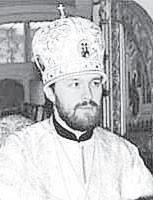
Catholic Church. The Orthodox Church has no single primate. It consists of 15 autocephalous churches, each headed by its own patriarch, archbishop or metropolitan. In this family of Churches the patriarch of Constantinople is “primus inter pares,” but his primacy is that of honour, not of jurisdiction, since he has no ecclesial authority over the other Churches. When, therefore, he is presented as the “head” of the Orthodox Church worldwide, it is misleading. It is equally misleading when his meeting with the Pope of Rome is considered to be a meeting of the heads of the Orthodox and Catholic Churches.
Historically, until the schism of 1054, it was the Bishop of Rome who enjoyed a position of primacy
The Parish. The Nation. The World.
EDITOR
Anthony Barich
Letters to: cathrec@iinet.net.au
JOURNALISTS
Mark Reidy reidyrec@iinet.net.au
Sylvia Defendi (Parish/State) sdefendi@iinet.net.au
Paul Gray (National) cathrec@iinet.net.au
Bronwen Clune (International) clune@therecord.com.au
OFFICE MANAGERS inc. sales/subscriptions
Linda Jolliffe - Accounts recaccounts@iinet.net.au
Kathi Harp - Administration administration@therecord.com.au
PRODUCTION MANAGER
among the heads of the Christian Churches. The canons of the Eastern Church - in particular, the famous 28th canon of the Council of Chalcedon - ascribe the second, not the first place, to the patriarch of Constantinople. Moreover, the ground on which this second place was granted to the patriarch of Constantinople was purely political: Once Constantinople became “the second Rome,” capital of the Roman - Byzantine - Empire, it was considered that the bishop of Constantinople should occupy the second seat after the Bishop of Rome.
After the breach of communion between Rome and Constantinople, the primacy in the Eastern Orthodox family was shifted to the “second in line,” i.e., the patriarch of Constantinople. Thus it was by historical accident that he became “primus inter pares” for the Eastern part of the world Christendom.
I believe that, alongside with contacts with the Patriarchate of Constantinople, it is equally important for the Roman Catholic Church to develop bilateral relations with other Orthodox Churches, notably with the Russian Orthodox Church. The latter, being the second largest Christian Church in the world - its membership comprises some 160 million believers worldwideis eager to develop such relations, especially in the field of common Christian witness to secularised society.
Q: Do you think that this journey will open new horizons for the talks between the Christian and the Muslim worlds?
Bishop Alfeyev: Dialogue between Christians and Muslims is necessary and timely. It is quite unfortunate that some attempts by Christian leaders to encourage this dialogue have been misinterpreted by certain representatives of the Muslim world.
The recent controversy over Pope Benedict XVI’s academic lecture in Regensburg is a vivid example of such a misinterpretation. The aggressive reaction of a number of Muslim politicians, as well as of many ordinary followers of Islam, has been regarded by some observers as overly exaggerated. Some analysts asked: Are we not moving toward a world dictatorship of Muslim ideol-
to be considered by the Orthodox as confirming the claim, reflected in the Pope’s other titles, to universal Church jurisdiction. Among the many designations of the Pontiff, that of “Bishop of Rome” remains the most acceptable for the Orthodox Churches, since it points to the Pope’s role as diocesan bishop of the city of Rome. A title such as “Archbishop and Metropolitan of the Roman Province” shows that the Pope’s jurisdiction includes not only the city of Rome, but also the province.


ogy, when every critical observation of Islam - even within the framework of an academic lecture - is brutally and aggressively opposed, while criticism of other religions, especially Christianity, is permitted and encouraged? I should add, perhaps, that several theologians of the Russian Orthodox Church, even those normally critical of the Roman Catholic Church, expressed their support for Pope Benedict XVI when the controversy over his Regensburg lecture broke out. They felt that what he said was important, although, indeed, it was not quite in tune with modern unwritten rules of political correctness.
Q: The Pope did away with the title “Patriarch of the Occident.” What does this gesture mean? Is there any ecumenical meaning to it?
Bishop Alfeyev: Well, I was the first Orthodox hierarch that happened to comment on this gesture. Several weeks later, official comments were also made by the Holy Synod of the Patriarchate of Constantinople. In my remarks I argued that repudiation of the title “Patriarch of the Occident” is likely
“Primate of Italy” indicates that the Bishop of Rome is “first among equals” among the bishops of Italy, ie, using Orthodox language, primate of a local Church. Following this understanding, none of the three titles would pose a problem for the Orthodox in the event of a re-establishment of Eucharistic communion between East and West. The main obstacle to ecclesial unity between East and West, according to many Orthodox theologians, is the teaching on the universal jurisdiction of the Bishop of Rome. Within this context - unacceptable and even scandalous, from the Orthodox point of view - are precisely those titles that remain in the list, such as Vicar of Jesus Christ, Successor of the Prince of the Apostles, Supreme Pontiff of the Universal Church. According to Orthodox teaching, Christ has no “vicar” to govern the universal Church in his name.
The title “Successor of the Prince of the Apostles” refers to the Roman Catholic doctrine on the primacy of Peter which, when passed on to the Bishop of Rome, secured for him governance over the universal Church. This teaching has been criticized in Orthodox polemical literature from Byzantine time onward.
The title “Supreme Pontiff” - “Pontifex Maximus” - originally belonged to the pagan emperors of ancient Rome. It was not rejected by the Emperor Constantine when he converted to Christianity. With respect to the Pope of Rome, “Supreme Pontiff of the Universal Church” is a designation that points to the Pope’s universal jurisdiction - a level of authority which is not recognised by the Orthodox Churches. It is precisely this title that should have been dropped first, had the move been motivated by the quest for “ecumenical progress” and desire for the amelioration of Catholic-Orthodox relations.
Collaboration in Europe: The Record December 7.

hereditary position. When a new caliph became hostile to Christians, he left and joined the monastery of St. Saba in the Holy Land. Following his ordination, he taught at the monastery, preached in Jerusalem and wrote treatises and hymns. When the Iconoclasts began burning books and smashing images, he opposed them, defending the veneration of images with sound theology. He was declared a doctor of the church in 1890.


It’s been a tough year for St Mary’s Catholic Primary School in Donnybrook, so it was as much a catharsis as a celebration when the school celebrated its 90th anniversary on November 12
The school first opened as St Philomena’s by the Sisters of Mercy on May 28, 1916 with just 11 students, and by the end of the year there were 30.
Due to some townspeople’s lack of funds, school fees were paid in potatoes, fruit and vegetables - whatever form of payment they could muster.
Like many schools in those days, if it wasn’t for the help of the community the school would not have survived. That, and the tenacity of the nuns.
They had an unflinching faith that God would provide - and he always did. In 1959 they changed from St Philomena’s to St Mary’s, when the school was rebuilt after. The old one, located further up the hill, served various community purposes, being demolished in the 1980s.
There have been constant additions made to school buildings, and now its lush gardens and surrounds make it ideal for a school.
The 90th celebrations were six months in the making. But disaster struck when staff and students returned for the start of term four to find a classroom had been gutted by an electrical fire.
School principal Michael Grove, who finishes his one-year contract this year, has been stunned at the way the community has rallied to get the school ready for the anniversary celebrations.
“The community has shown that it still has the same spirit that the nuns had when they started the school - so
giving of their time, money or material,” Mr Grove said.
“I’ve just been here for the year but it’s been an absolute privilege to be part of this community, and I’m very sad to move on.”
Staff, students, parish and community members from past and present descended on the picturesque southwest town of Donnybrook for the anniversary celebrations.
A Eucharistic celebration marked the significance of the event for the school that opened as St Philomena’s under the administration of the Sisters of Mercy catering to both primary and secondary students, day scholars and borders.
Bunbury Bishop Gerard Holohan celebrated Mass for the occasion, emphasising the parallel between the school as a place of faith and the relationship with God that each member of the school community had developed over its 90 years.
“A celebration such as this presents a good opportunity for us to ask, ‘do we need to get back in touch with what our school tried to give us? Are we growing in the kind of faith that our pioneering Sisters reflected through their actions? Are we growing each day in our experiences with God’?” he said.
Addressing the community at the conclusion of the Mass, Debra Sayce, the Catholic Education Office’s assistant director of the Religious Education and Faith Formation, paid tribute to the contribution made by the founding Sisters of Mercy.
“Their pioneering work and their sincere desire to provide a Catholic education to children, particularly in country areas, has to be applauded,” she said, also paying tribute to the parents of the school who she recognised as the first educators of their children.
Join Pope Benedict XVI in prayer November








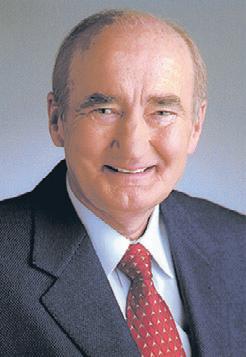
Do I guarantee that when people come to do business with me, they will be treated with courtesy, sincerity, professionalism and ef ciency?
I say “I want your business and I m prepared to pay for it” and “I stand behind every car I sell”. Is that really true?
Is it true that I have over 40 technicians who are dedicated to getting my used cars in rst class condition before sale?
Is it true that every year for the last 17 consecutive years
I ve been Australia s top selling Hyundai dealer?
CHOOSE
Is it true that if somebody buys a used car from me, I will pay for a pre-purchase RAC or similar inspection?
I have a warehouse selling cars under $10,000. Is it true that I offer a full money back guarantee within one week?
Mission intention: African developmentThat through the effort of believers, together with the forces of society, the new and old chains which prevent the development of the African Continent may be broken.
General intention: The end of terrorism. Th everywhere in the world, an end be put to all forms of terrorism.


Guy walks into a bar that serves full meals and advertises If we don’t have it you eat free. He orders elephant steak.
Chef asks, “Indian or African?” Man says “African.” Chef says, “Better if you make it Indian.” Man says, “If you don’t have it, I eat free.”Chef says, “Oh, we have it, but it’s near closing time and I hate to start a fresh African elephant.”
The Australian Family Association has told The Record that compulsory DNA paternity testing to establish a biological link between fathers and their children should be considered for all cases involving the payment of child support.
This proposed legal change was suggested in response to the DNA paternity testing controversy sparked by a recent High Court case.
Last week Prime Minister John Howard said that “the available medical science” should be provided for men to be certain that they are the fathers of their children.
The Prime Minister’s comments were made after a long-running court controversy involving the paternity case of Liam Magill.
Mr Magill had discovered through DNA testing that two of the three children he believed to be his were fathered by another man.
After the breakdown of the marriage to the mother, he had paid child support for all three children for eight years.
Mr Magill was later awarded $70,000 damages by a court. Last week this award was overturned by the High Court in Canberra.
The case has brought to public attention one of the most painful and legally difficult aspects of divorce culture in Australia today.
Two Liberal members of the federal parliament, Albie Schultz and Sophie Mirabella, have proposed changes to the law to ensure that men will not be forced to pay to support children who are not their biological offspring.
While stopping short of outright endorsement of that proposed legal change, Mr Howard said that
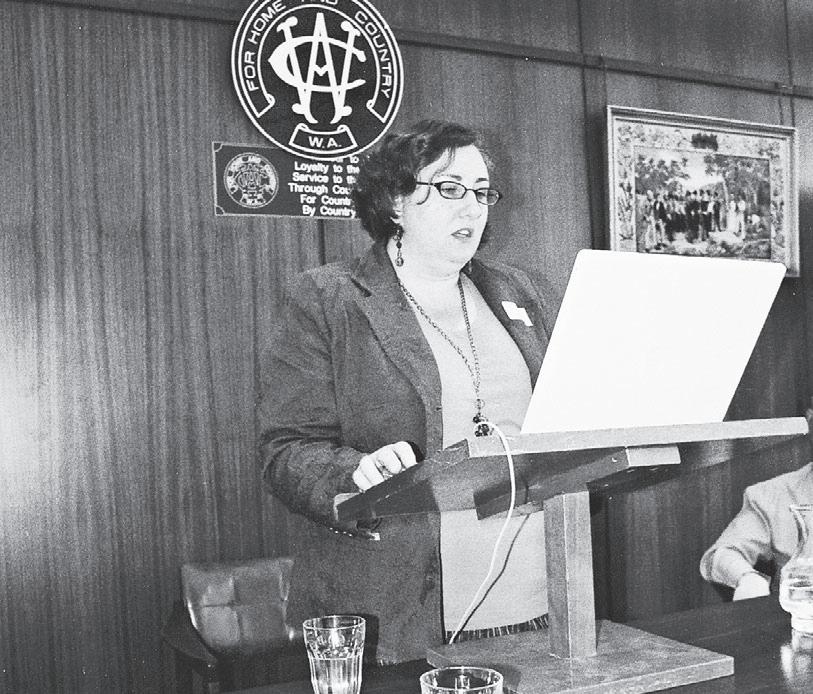
men in doubt about the paternity of their children should be able to “establish their position”.
The main principle referred to by Mr Howard was the need for clarity about the paternity, where this issue is in doubt.
Also responding to the Liberal MPs’ proposal, the National Council of Single Mothers and their Children warned of a different danger arising from paternity testing.
“Sensitive information, such as children learning that their father tried to find proof that he was not their father could be devastating,” said the Council’s convener, Elspeth McInnes.
She opposed any change in the law to make the rules on DNA testing easier for men to procure.
The concern raised by the single mothers’ Council is that men who actually are biological fathers may use the loosening of DNA testing rules to avoid paying maintenance which they should pay.
Such attempts, which would also convey doubt, and even scepticism
Debate on the desirability of legalising surrogate motherhood has been stirred up by the decision by Victorian Senator Stephen Conroy and his wife to create a surrogate child, with the aid of two other women.
Publicity about the Conroy case led to the reporting of comments by the Archbishops of Melbourne and Sydney last week.
In Sydney Cardinal George Pell said that while he sympathised with Senator Conroy and his wife, surrogacy was “far from ideal” as a solution.
“We hope the situation does not unravel in the future to the detriment of the child,” Cardinal Pell said.
In Melbourne Archbishop Denis Hart also expressed compassion for the anguish experienced by childless couples.
Describing the Conroy story as “particularly heart-rending,” Archbishop Hart said that a child should result from a natural act of love between a married couple.
“Surrogacy isn’t even on our
about the marital faithfulness of the children’s mother, could create psychological difficulties for the children, it is suggested.
However the majority of voices raised in this debate so far have expressed concern, rather, for fathers deceived about the pater-
nity of their children. Angela Conway, spokeswoman for the Australian Family Association, told The Record she believed the High Court had made the wrong decision in the Liam Magill case.
“Marital infidelity is a serious injustice to the children of the marriage,” she said. “As a society we have to face up to this.
“We need to clean up a mess that we ourselves have created.”
Mrs Conway said that women’s magazines routinely declare that affairs and marital infidelity are insignificant and “par for the course” in modern life.
“But these things are serious issues which involve injustice not only to the other spouse but also to children.
“For these reasons the issue should not be swept under the carpet any longer, and legal approaches to the question must be adopted.”
Mrs Conway said it is time to examine the question of mandatory biological paternity testing in all cases where child support is going to be applied.
By making such testing routine in every single case where fathers are obliged to pay child mainte-
nance, the objection raised by the Council for Single Mothers and their Children can be met, Mrs Conway said.
The question of children being psychologically damaged by discovering that their biological father doubted his own paternity of them is indeed a real concern, Mrs Conway agreed.
For this reason, making DNA testing compulsory in every case of parental separation involving child support payments would be in the best interests of children.
Mrs Conway also addressed the question of whether “social fathers” - men who have formed father-like relationships with children who are not their own - should be compelled to pay child support.
“There is a case for not compelling these fathers,” Mrs Conway said. An exception to this is the situation where a “social father” has formally adopted the child, knowing its real paternity, in which case enforcing child support would be just.
The AFA rejected the view adopted by some commentators that biological paternity should not even “enter the picture” in debate about child support.
DUBLIN, Ireland (CNS) - The Irish Constitution’s protection of the unborn does not cover embryos outside the womb, ruled the High Court in Dublin. In its November 15 ruling, the High Court rejected the case of a woman seeking to have three frozen embryos released to her against the wishes of her estranged husband.
The court ruled that the constitutional protection given to the unborn did not apply to embryos that were frozen or in vitro. The woman had argued that under the
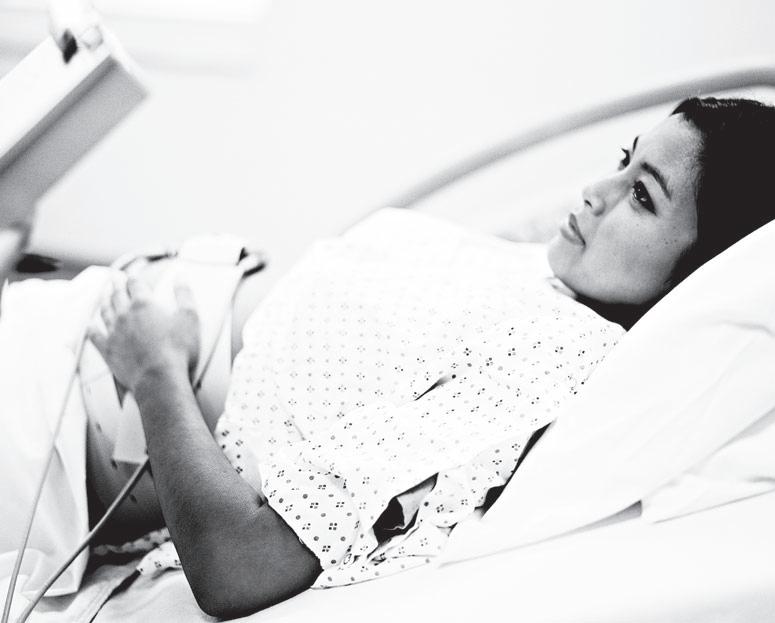
radar,” Archbishop Hart said. The Conroy case involved an egg donated by a friend of the Conroys. After fertilisation, the incipient life was implanted in a third woman, the surrogate mother.
The child created, a girl, was born in Sydney. Surrogacy is illegal in Senator Conroy’s home state of Victoria.
Some politicians have called
for national uniform laws on surrogacy, prompting speculation that a debate on the ethics of this innovative reproductive system will now ensue.
In the Melbourne Age, Catholic bioethicist Dr Norman Ford said a child should result from the natural marital act, and to the extent that technology veered from that, the Church opposed it.
Irish Constitution her embryos had a right to life. Archbishop Diarmuid Martin of Dublin expressed concerns about the decision. “From a first consideration of the judgment, it would appear that the decision casts doubt concerning the level of protection which the constitution affords to human life at its earliest stages,” the archbishop said.
“It is to be hoped that this issue will receive full consideration in any eventual appeal to the Supreme Court and that the general protec-
tion of every human life at all stages of its development will be vindicated.”
Before the ruling, Minister for Health and Children Mary Harney instructed her department’s legal staff to prepare new legislation covering “assisted reproduction.”
While in vitro fertilisation treatment is relatively common in Ireland, there is no legislation that covers this specific area of activity or how doctors offering such treatment should dispose of unused embryos.
The House of Representatives is expected to vote on the Bill to allow human cloning on November 30, which is therefore the deadline for informing Federal MPs of your attitude towards the legislation.
The Bill has already been passed by the Senate, but can be defeated in the House of Representatives.
Those lobbying against the Bill on behalf of the Church and various Catholic organisations have urged people to make their views known in the hope of influencing their local MP’s vote.
They have suggested that parish councils could write to their MP informing them that Catholics in general are opposed to the Bill, asking them whether they support or oppose the Bill, and undertaking to inform the
local Catholic community of the outcome. Such a move could be most effective in the marginal seats in the archdiocese – Cowan (Graham Edwards), Hasluck (Stuart Henry), Stirling (Michael Keenan) and Swan (Kim Wilkie).
MPs have a conscience vote on this legislation and are therefore more open to hearing from the electorate before making up their minds.
The proposed legislation will allow the creation and destruction of human embryos for medical experimentation.
To date, the only stemcell treatments that have been successful in human healing have involved adult stemcells taken from various parts of the body. The Catholic Church fully supports adult stemcell research and has contributed funding for this purpose.
VATICAN CITY (CNS) - Pope Benedict XVI and top Vatican officials, meeting to review the status of married priests, reaffirmed the value of priestly celibacy and said its importance should be highlighted among priests and seminarians.
At the same time, the participants examined the possibility of the return to active ministry of some priests who may have left the priesthood to marry but who now meet certain conditions, a Vatican statement said.
The Pope presided over the three-hour meeting of more than 20 heads of Vatican congregations and councils on November 16.
“The value of the choice of priestly celibacy according to the Catholic tradition was reaffirmed, and the need for solid human and Christian formation was underlined, both for seminarians and for those already ordained,” a brief Vatican statement said.
The Vatican encounter was triggered by the case of Zambian Archbishop Emmanuel Milingo, who recently was excommunicated after he ordained four married men as bishops without papal permission.
The Vatican statement, issued a few hours after the meeting, made no mention of Archbishop Milingo. It said the participants were given updated information on requests by priests for dispensation from
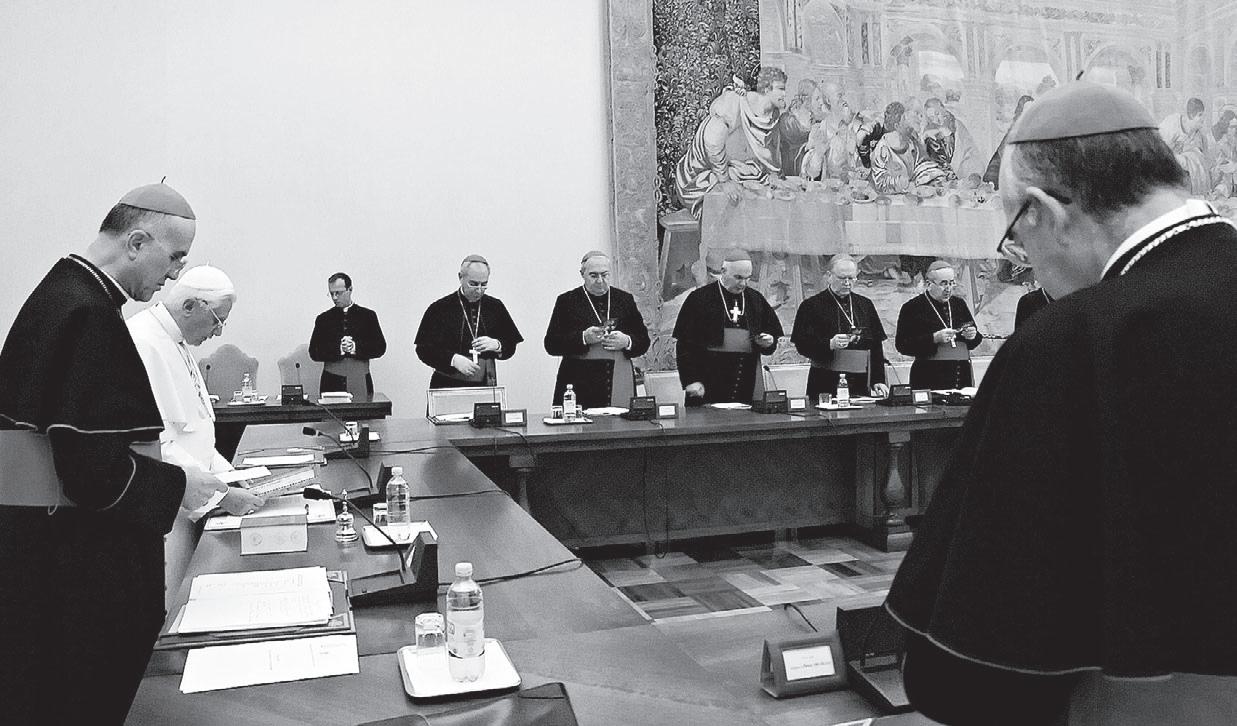
the obligation of celibacy and on the possibility of readmission for priests who “meet the conditions foreseen by the Church”.
In recent years, the Vatican has approved the return to active ministry for some priests who left to marry in civil ceremonies, but who later divorced or were widowed and petitioned for readmission.
Such readmissions follow a long process and require an expression
of repentance from the petitioner, according to Vatican officials.
The Vatican spokesman, Jesuit Fr Federico Lombardi, said it was his understanding that the meeting did not consider major changes in the priestly celibacy rule.
Instead, he said, the discussion appeared to focus on the pastoral situation of priests in those special circumstances seeking readmission to ministry.
When ordained, Latin-rite Catholic priests make a promise of celibacy.
In the Eastern rites, married men may become priests, but are not allowed to marry after ordination.
The Vatican encounter came less than two weeks after Archbishop Milingo wrote an open letter to the Pope, calling for immediate steps to accept married priests in the Catholic Church in order to end
what he said was the Church’s “dire straits because of the shortage of priests.”
In his letter, Archbishop Milingo said there were an estimated 150,000 married priests worldwide “who are ready and willing to serve”.
Archbishop Milingo, 76, married a South Korean woman in 2001 but at the request of Pope John Paul II left her and was reconciled with the Vatican. Last summer, however, the archbishop was reunited with his wife in the United States and founded a movement called Married Priests Now!
The issue of priestly celibacy and the potential role of married priests came up at the Synod of Bishops on the Eucharist in late 2005. Several bishops at the synod asked for discussion of the possibility of ordaining married men to respond to priest shortages around the world.
But the synod ended up strongly affirming the value of priestly celibacy and made no recommendations for any change. The Pope is expected to publish a document on the synod sometime soon.
Priests who request and obtain Vatican dispensation from priestly celibacy in order to marry are returned to the lay state. They are not allowed to administer the sacraments, except for granting absolution when there is danger of death, and are forbidden to assume some other functions in church life.
LONDON (CNS) - Catholic and Anglican leaders in Britain have united to stand against recent suggestions by doctors in the country to kill severely disabled newborn babies.
On November 15, Catholic Archbishop Peter Smith of Cardiff, Wales, and Anglican Bishop Tom Butler of Southwark issued a statement welcoming the findings of the Nuffield Council on Bioethics, an independent think tank on ethical issues in fetal and neonatal medicine.
Rejecting a call from British doctors to consider legalising infant euthanasia, the Nuffield Council on Bioethics recommended that active killing of newborn babies should not be allowed, no matter how serious their condition. However, the Council, whose reports are highly respected by the UK government, made its own controversial recommendation: to give only palliative care to all babies born before 22 weeks. “The professional obligation of doctors is to preserve life where they can,” the Nuffield Council said in a statement.
“If doctors were to be permitted actively to end the lives of seriously ill newborn babies, there is a risk that the relationship between parents and doctors would be negatively affected. It would also be very difficult to identify an upper age limit beyond which actively ending life would not be allowed.”
The bishops expressed satisfaction that the council’s final report, recommended that “the active ending of life of newborn babies should not be allowed, no matter how serious the condition”.
“This reaffirms the validity of existing law prohibiting euthanasia and upholds the vital and fundamental moral principle that the deliberate taking of innocent human life is always gravely wrong,”
they said. The Nuffield Council also set out guidelines on when to give intensive care to extremely premature babies. Advice for parents and doctors is provided, on a week-byweek basis, for treating babies born before 22 weeks up to those born after 25 weeks.
It says it is extremely rare for babies born before 22 weeks to survive. The Council recommends that intensive care should not be given to these babies at the current time, except as part of a pre-approved research study.
It also says that only about one per cent of babies born between 22 and 23 weeks survive to leave hospital. The Council recommends that normal practice should be not to give intensive care at this age, unless parents request it after a thorough discussion of the risks and if the doctors agree.
“Natural instincts are to try to save all babies, even if the baby’s chances of survival are low,” said Professor Margaret Brazier, who chaired the committee that produced the guidelines. “However, we don’t think it is always right to put a baby through the stress and pain of invasive treatment if the baby is unlikely to get any better and death is inevitable.”
It is very difficult to predict whether babies born between 23 and 24 weeks will live, die, be healthy or have disabilities later on in life. Because of this uncertainty, the Council recommends that parents, after a thorough discussion with the healthcare team, should have the final say in whether intensive care is given.
For babies born between 24 and 25 weeks, normal practice should be to give intensive care, unless the parents and the doctors agree that there is no hope of survival or if the level of suffering outweighs the baby’s interest in continuing to live.
Over 25 weeks of gestation, babies have a sufficiently high chance of surviving and low risk of developing severe disability. Intensive care should normally be given.
“We believe that the guidelines will help parents and doctors to make decisions in these very traumatic situations,” said Professor Brazier.
The number of extremely premature babies being born has been increasing since the 1980s. The age at which premature babies can survive has been falling by approximately one week every decade over the last 40 years.
However, most will still die. The EPICure study showed that the percentage of babies born alive in 1995 between 22 to 23 weeks who survived to leave hospital was one per
cent; at 23 to 24 weeks it was 11 per cent; at 24 to 25 weeks, 26 per cent; and 25 to 26 weeks, 44 per cent.
The Council says survival before 22 weeks is very rare. More recent data indicate that survival rates are higher now, although the EPICure study still provides the only UK nationwide data available.
“If an extremely premature baby survives to leave hospital, he or she may grow up with disabilities. In the EPICure study, of the babies born between 23 to 24 weeks who survived, about two thirds had moderate or severe disabilities.
By 25 to 26 weeks, two thirds had no or mild disabilities,” the Council said, adding that children who have disabilities due to prematurity represent an extremely small proportion of the total number of children
with disabilities in the UK.
Meanwhile, the Catholic Bishops’ Conference of England and Wales and the Church of England House of Bishops met together for the first time on November 14-15 in Leeds, England.
The 30 Catholic and 40 Anglican bishops met to pray together and hold discussions on a variety of topics, and the meeting was chaired by Anglican Archbishop Rowan Williams of Canterbury and Cardinal Cormac MurphyO’Connor of Westminster, president of the English and Welsh bishops’ conference. It was held a week before Archbishop Williams was to visit Rome for a private audience with Pope Benedict XVI on November 23, which will be the second time they have met.


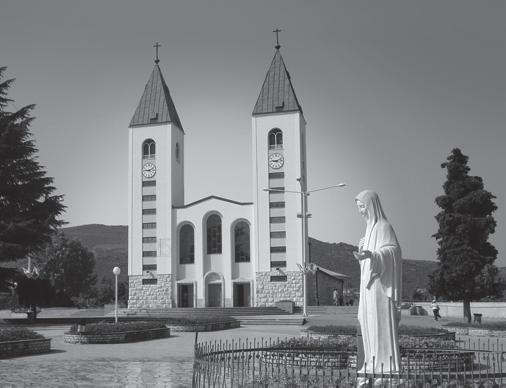

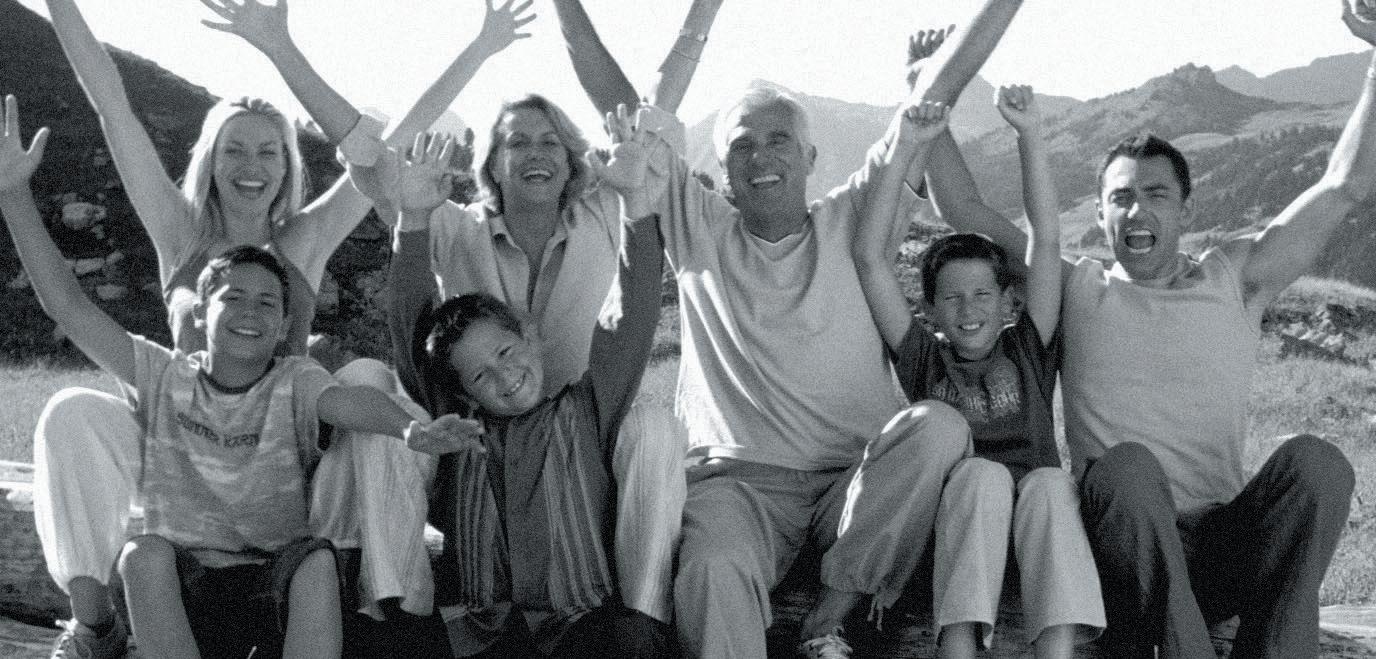


By
Sylvia DefendiPope Leo XIII stamped his own name on St Joachim’s Church in Victoria Park, which celebrated its golden jubilee on November 18.
Past and present parishioners gathered for the solemn sung Mass, which was celebrated by Monsignor Thomas McDonald.
During his homily, Mgr McDonald recounted a brief history of the Church, which began in 1898 with a small wooden building and is now Perth’s pro-cathedral.
A notice appeared in The Record, dated December 10, 1898, which stated that a start had been made on the foundations of the new church at Victoria Park.
While in Rome for an audience with Pope Leo XIII, the then-Bishop of Perth Matthew Gibney disclosed that a new parish church was being built in the archdiocese and was as yet unnamed.
The Holy Father then instructed the Bishop to name the new Church after the saint who shared his baptismal name – Joachim.
Mgr McDonald commented during the recent anniversary celebrations that the parish was fortunate to have such a saint guiding the parish community.
On February 4, 1899 The Record reported on the blessing of the completed Church, which was performed on Sunday January 29 by Bishop Gibney.
However, in 1920 a severe storm further damaged the then decaying building, which was subsequently deemed unsafe for use.
The parish hall served as a Church for many years, until there were enough funds to begin construction of a new Church building.
The second Church of St Joachim was blessed and opened
by Archbishop Prendiville on November 18, 1956 and was again reported in The Record:
“Built at a cost of 30,000 pounds the Church of St Joachim dominates the city, the suburb and the river. It was stately, dignified, commodious and devotional.”
A thousand people gathered at St Joachim’s for the opening ceremony of the new Church building, which seated 500 people and featured a bell tower, surrounded by an 18foot illuminated cross and housing an English bell.
In The Record on November 22, 1956, Archbishop Prendiville praised the then parish priest, Fr Humphrey Kearin, commenting on his great ambition to provide a suitable Church for the community of Victoria Park, despite the lack of available funds.
“There was an old liability to be liquidated and other improvements to be effected.
“There were times when they felt inclined to wilt under the strain. But they were always inspired and encouraged by Fr Kearin’s extraordinary selflessness and zeal,” said Archbishop Prendiville in the report.
This year, in celebration of the Church’s rich history, parishioners were joined in the parish hall by the architect of their current Church, Anthony O’Hara.
“Looking back now I am still very satisfied with the design, and the workmanship of builders Hornett and Horner,” he said, adding that it was considered an enormous Church in 1956 and is still the largest Church he has designed.
An international luncheon was shared by all and a large anniversary cake was cut by Mr O’Hara, who said it was very satisfying to see the first Church he had ever designed still standing.
ROME (CNS) - Pope Benedict XVI is expected to address the need for a broader understanding of the religious freedom guarantees during his November 28-December 1 visit to Turkey.
Turkey’s unique brand of secularism is not separation of religion and state, but rather government control of religion, impacting both the Muslim majority and religious minorities.
The government builds and funds mosques, employs Muslim prayer leaders, controls religious education and bans Muslim women and men from wearing certain head coverings in public offices and universities.
The Turkish Constitution guarantees the religious freedom of all the country’s residents, and a 1923 treaty guarantees that religious minorities will be allowed to found and operate religious and charitable institutions.
Secularists in Turkey see control of religion as the only way to guarantee Islam will not overpower the secularism of the state and its institutions.
However, the fact that the constitution and Turkish law do not recognise minority religious communities as legal entities has severely limited their ability to own property, and laws restricting private religious higher education have made it almost impossible for them to operate seminaries and schools of theology.
Otmar Oehring, head of the human rights office of Missio, the German Catholic aid and development agency, said that when the Republic of Turkey was founded in 1923 the Department of Religious Affairs was established “to crush Islam and replace it with Turkish nationalism, which was seen as the only way to promote the modernisation and development of Turkey.”
“But it is clear that you cannot take religion away from a religious country,” Oehring said from Aachen, Germany. “Turks are not fundamentalists and radicals, but they are pious.”
Oehring lived in Turkey until he was 16, and he wrote his doctoral thesis on ideological tensions within the country.
Once multiparty democracy was established in Turkey in the 1950s, he said, the Religious Affairs
Department started opening more mosques and training and hiring more imams.
Although the effort to crush Islam was set aside, a conviction that religion had to be controlled was not, he said.
“The state controls and organises a state brand of Islam,” he said.
Particularly as Turkey’s human rights record is examined as part of its bid to enter the European Union, “many say religious freedom in Turkey would be dangerous” because of a perceived threat of Islamic fundamentalism, Oehring said.
“However, I argue that under international human rights agreements people must be given full religious freedom, but the state can take action against those who pose a danger for public safety or the state,” he said.
As far as religious rights go, “in Turkey they first say ‘no,’ then try to see how they can make it work. We say ‘yes,’ then work to prevent abuses,” Oehring said.
While Turkish Muslims live their faith under government control, minority religious communities operate under government restrictions, and minorities often face
Two of Australia’s top former Army generals, General Peter Cosgrove and Major General Peter Phillips, have thrown their support behind a recruitment drive to attract vocations and support for the Australian Catholic Military Ordinariate.
Under the banner “Help keep Faith in the Forces”, the Military Bishop, Bishop Max Davis, has launched The Armed Services Catholic Diocese Revenue Fund, asking for donations and bequests to help finance the training of priests and deacons for the Diocese, as well as the formation of lay leaders to take on the role of Catholic Representatives for deployable units of the ADF which do not have chaplains.
The patron of the Revenue Fund Appeal is retired General Peter Cosgrove and the chairman of the Military Diocese Finance Council is retired Major General Peter Phillips.
In a letter seeking support for the Fund from former Catholic Members of the ADF, Major General Phillips urges assistance in providing prayerful and practical support in attracting vocations for the Catholic Military Ordinariate.
“I am sure that, like me, you remember the great work done by our Catholic chaplains,” he writes. “After my 40 years in the ADF, I am eternally grateful for the good men who ministered to me and others in their flock, often under adverse conditions.”
Major General Phillips said that with the declining numbers of priests in Australia, few are available to work in the military diocese In fact there are now only 13 priests and deacons in full time military service.
“The Bishop and his team have a huge responsibility to minister to the more than 20,000 baptised Catholics in the ADF,” he said. “The

work that they are doing deserves our support Above all, they call for your prayers for vocations to the clergy and Lay leadership in the Diocese”.
Bishop Davis thanked Major Phillips and General Cosgrove for their generous support of the Military Diocese and the Revenue Fund and said it would help ensure the Diocese survived to minister to the 20,000 baptised Catholics in the ADF.
“We are the only diocese in Australia where the financial resources come from the chaplains, that is, the clergy. Essentially, we tax the clergy to run the diocese and with falling clergy numbers, there is a corresponding fall in our
discrimination in education and employment, he said.
“If you are a Turkish citizen of Turkish origin, with a Turkish name and you are a Sunni Muslim, you will have no problems,” Oehring said. “But if you are Catholicor worse, Greek Orthodox with a Greek name - you are considered a foreigner, even if you are a Turkish citizen.”
One of the most difficult issues Christians, Jews and other religious minorities are facing is their lack of recognition under Turkish law, particularly as it applies to their ability to acquire and own property for churches or synagogues, schools and hospitals, he said.
Running seminaries is even more difficult, Oehring said.
“In 1971, the government decided there would be no more private religious schools offering higher education,” so the Greek and Armenian Orthodox seminaries were closed, he said. The Jewish community already was sending its rabbinical students abroad, and the Latin-rite Catholic seminary remained open since it was housed in the compound of the French consulate in Istanbul. “The Muslim schools had already been closed in 1924 and
were reopened as government-run high schools or faculties of divinity in Turkish universities,” so the state controlled what the students learned, he said.
While many people recognise the continued closure of the seminaries as a problem, he said, “the Kemalists and secularists say if you give Christians the possibility of opening schools, Islamic schools not under state control also would have a right to open.”
In early November, under pressure from the European Union, the Turkish Parliament passed a “religious foundations law” ordering the state to return property it owns that had been confiscated from religious communities. As of November 15, the legislation had not been signed into law. “A lot of church people prefer that this not become law because then the government can say it did what it was asked to do and nothing will change for another 20 years,” Oehring said.
The biggest problem with the law, he said, is that it applies only to confiscated property still owned by the state, but it does not address the issue of compensation for confiscated property subsequently sold by the government.
base of support.” he said. “There are wonderful signs of hope. I recently ordained the first priest for the Diocese, a former soldier, Fr Damian Styles, and two others are undergoing formation for the priesthood. The Episcopal Deputy for Women has begun an active program of visits to servicewomen and families.
“I pray that the Armed Service Catholic Diocese Revenue Fund Appeal will be successful and allow us to raise the resources needed to foster and build on these signs of hope in concrete ways which will help us to continue serving those who serve our nation.”
A revealing account of East Timor’s human rights abuses under Indonesian occupation was launched on November 17 in Melville by Patrick Walsh, manager for the United Nation’s Commission for Reception, Truth and Reconciliation in East Timor (CAVR). Chega! – Portuguese for ‘enough’ – is a comprehensive report on human rights violations in East Timor from 1974 to 1999, during Indonesian occupation. The 2500-page report is the collective testimony of the Timorese survivors and contains 204 recommendations, ranging from continued financial assistance to the strengthening of the judicial system, so that civil society in East Timor may develop. Work on the report began in 2002 and its deliberations included taking evidence from 7000 eyewitnesses over three years. Chega! includes a comprehensive statistical analysis of death, displacements, torture, ill-treatment and threats; as well as testimony from seven national public hearings and a report on the 1371 community reconciliation processes it conducted in order to assist the reintegration of offenders (mostly former militia members) into their local communities.
“The commission aimed to find the truth, organise the process of community reconciliation, and make recommendations. CAVR did not offer amnesty; it recorded reports on serious crimes against humanity and conducted reconciliation processes for lesser crimes,” Mr Walsh told The Record. CAVR estimates that 102,800 civilians died unnecessarily from causes related to the conflict. Of this number, 18,600 were forcibly killed, while 84,200 died from hunger and sickness caused by military operations.
“The report is heartbreaking and moves you to tears. It essentially raises the importance of accountability when human rights are violated,” Mr Walsh said. A nearly completed version of Chega! was handed to East Timorese President Xanana Gusmao late last year. However, due to recent violence, it has only been disseminated around East Timor in the last few months. Following its dissemination throughout TimorLeste, Chega! was launched in Australia.
Over 50 people attended the Perth launch, including members of Perth’s Timorese community, members of Melville Friends of LeteFoho (MFLF), activists, members of Catholic religious congregations and members of the Edmund Rice Centre for Social Justice. While in Perth, Mr Walsh said the report was the first commission of its type in the Asia-Pacific region, and added that countries in the region, such as Indonesia, are now considering a similar process. Perhaps the most integral aspect of the report is that it has voiced East Timor’s largely unknown modern history of turmoil while providing the Timorese people with a written and researched record of their recent history through the experiences of the people. Schools now have the basis for a detailed textbook for that period. At present, the report has not been properly debated in East Timor although Mr Walsh is convinced that this is a pending necessity. “Reconciliation cannot be achieved without the truth and the truth would be meaningless without justice,” stated President Gusmao.
Copies of the Chega! CDROM and other resources can be ordered from the bookshop at the STPCAVR office in Dili, by contacting Celina Martins through bookshop@cavr-timorleste.org.
Further information can be found at: www.cavrtimorleste.org.
This Sunday’s feast of Christ the King is a wonderful way to bring the Church’s year to an end. It reminds us that we have nothing to fear: all is well, all will be well, all manner of things will be well, as Julian of Norwich put it in her “Revelations of Divine Love”.
Jesus is the King, but not like any earthly king. He is divine and eternal, the king of truth and love, and those who acknowledge him and obey him have nothing to fear because, as he said, “my Father and I will come and make our abode with you”. That is living right royally, indeed.
Coming as it does at the end of the year, the feast of Christ the King encapsulates all that we have been celebrating for the last twelve months. Sunday by Sunday, day by day, Eucharist by Eucharist, feast by feast we have progressed through all the reminders of the events of his life, all the signposts of the wisdom of his teaching, all the wonder of his kindness and love to all who approached him while he was on earth and ever since, and most of all the power of his death and resurrection, the ultimate expression of his humanity and divinity. This feast wraps it all up in the acknowledgement of his divine kingship, a sort of cosmic incomprehensibility that we can yet accept with ease.
The article by Brian Peachey in The Record 9/11/06 titled “Mary’s House in Ephesus”, gives us St John(19:2527) as saying “...from that hour the disciple took Her unto his home”.
Actually the correct words of St John are “...and from that hour, the disciple took Her to his own”.
Dear Editor & Readers,
Wish you a very happy Christmas and a Bright New Year. I have three school and a parish of five thousand people. Will you kindly help me by sending pens, pencils, rosaries, used cards and used magazines and statues.
We shall be praying for you in return. Please help.
Love and blessing.
Fr. Paul Cruz
St. Antony’s Church Kanjirakodu P.O., Kundara-691 501 Kollam, Kerala - India
ious, as He was also the Omnipotent God. Our acceptance of that wonderful offer is in that St John indicates, in his own words, that he took Her to his own, (meaning mother), and at the same time the Mother of God becomes our Mother, because we wish to follow Christ Jesus like St John did.
PO Box 75, Leederville, WA 6902
Tel: (08) 9227 7080, Fax: (08) 9227 7087 cathrec@iinet.net.au
The timing of the feast is also impeccable because it is followed immediately by the new Church year, the season of Advent, the period of preparation for the appearance of the king as a helpless baby, totally dependent on Mary and Joseph. In one sense there could be no greater contrast than that between Christ the King and the baby Jesus, but after all he has told us and shown us and done for us, there is no contrast at all and we have learned to know that the king of majesty and the babe in the manger are one.
The Christmas appearance of the king tells us many things about him. He tells us we are loveable because he has loved us; he tells us we are trustworthy because he entrusts himself to us; and he tells us we can dare to love him because he appears as a baby and babies can so easily arouse love in us.
There are a myriad other things that can be said about our wonderful king. Millions of newspapers, magazines, books and homilies are written about him each year, to the point where most of the writers wonder at some stage whether there is any point in trying to say what seems so important but which surely must have been said before. Strangely enough, however, there is always someone who benefits from each honestly written piece, even if, sometimes, the writer is the only one to benefit from the exercise.
All of these wonderful things about our king deserve to be talked about endlessly – far more so than the less than wonderful things about politics, entertainers, and ‘celebrities’ that are written and spoken about in vastly greater volumes with infinitely less benefit to mankind.
All of these truths about our king teach us and remind us of the wonders of God and teach us about who we are and what our potential is as the image and likeness of God.
But of all the wonders of our king, perhaps the one we should keep closest to our mind is the wonder that our king was crowned with thorns.
He did not want riches or honours or power. He did not want fame, or adulation, or celebrity status. He came to do the will of his Father in heaven; he came to glorify his father; he came to empty himself and to leave the rest of it to his Father.
He came to be crowned with thorns to remind us that most of the things we think we want don’t mean a thing, but the suffering we are terrified about having will make us strong. It is quite some king who would be crowned with thorns to help us see something really important that we desperately don’t want to see. But that is the sort of king we have, a king who not only tells us the truth but lives it in extreme form so that we can see that it is true.
It is a wonderfully joyous feast we have this Sunday, but we will get the greatest benefit from it when we learn to listen to all that the king tells us and do our best to live it. That is the only way we can help ourselves and our family, friends and neighbours who don’t recognise the king or listen to anything he says.
This translation from the one and only infallable Latin Vulgate is taken from the English vernacular translation in the Duay Rheims Bible, which is much more reliable, word for word and meaning bible, than any other popular English version.
We know that the gospel writer St John is the same St John the apostle. He was the only one brave enough, loving and faithful, to risk his life following Jesus to the Cross.
Jesus rewards him by giving him his own mother to become his and to all of us followers of the Cross, a spiritual mother.
St John’s earthly mother (Mary Clopas) was also standing at the cross. Many say that Jesus was delirious at that stage, when He said to the disciple “ Behold thy mother”.
The “Man-God” could not be delir-
Out of love of Jesus for all of us, we have an account of St John’s vision in the Apocalypse (12:1-2) where “... a woman appeared clothed with the sun and the moon under Her feet and on Her head a crown of 12 stars: and being with child, She cried travailling in birth, and was in pain to be delivered.”
Through Her pain and sufferings She gives birth to us all, becoming our spiritual Mother.
Wes Wlodarczyk Canning ValeWithout God, man is void of Love (abortions, divisions, wars, violence, hatred and terrorism). God is more and more denied and trampled. What can He do in front of this victory of the Dragon? He will defeat him by His
Merciful Love and humiliate him. The Virgin Mary teaches us to walk the road that leads to God, the road of Love that leads to Paradise. If you fall then go to confession, we need our priests to remind us of this wonderful sacrament. Truth is not an option, not being liked is not important, facing Jesus is all that counts and saving many souls.
Living within the boundaries of the 10 Commandments, Holy Mass and making the sacrifice to spend time in adoration with our Lord and master.
Be humble, do not tread on the Blood of Christ, you have to carry the unfaithful Church. Wolves have entered it disguised as lambs. Do not judge these pastors who fall but help them with your prayers, good example and good works.
Unity with the Holy Father will lead us Catholics to the real truth. Know the Catechism of the Catholic Church then we will not be carried along with all sorts of strange doctrines of these times.
Margaret Thomas Mullewa“Don’t be afraid to pitch your tents on distant shores if sheep are there to lead the fold, sheep from Italy, Bavaria and all Europe; from America, Africa, Asia and Oceania. Bring them all in!”
Such is the mission of the Sisters of the Good Shepherd, who settled in Australia in 1863 to work with women and girls facing hardship and who’s overwhelming contribution to Australian society has been compiled
Beautifully presented historical pictures of the sisters, the surrounds and various notaries of the era, not only accompany the written accounts but also paint the picture of a changing Australian society through history
and presented in a recently published historical account, titled – Pitch Your Tents on Distant Shores. Responding to a period of great social change and unrest in Australia, the sisters were soon at the forefront of welfare provision in Australia, eventually establishing foundations throughout Australia, New Zealand and Tahiti.
These courageous women offered assistance to families, children, women in prison, and others in need, as well as taking the lead in many areas of social
policy, from trafficking of women to fair trade, and developing imaginative solutions for those in financial distress.
The meticulously researched history provides a fascinating insight into the lives of marginalised women and children during the turbulent Gold Rush era and beyond. Most interestingly, Perth author, Catherine Kovesi, contrasts the attitudes and approaches of the sisters across 143 years and how these have changed from a stance of protection to one of integration in society for the women and girls in their care.
The book includes dozens of original extracts and notes from the women and girls who were in their care, and sheds light on the little known history of the religious order.
Beautifully presented historical pictures of the sisters, those in their care, the surrounds and various notables of the era, not only accompany the written accounts but also paint the picture of a changing Australian society through history. The book also presents readers with a reoccurring timeline throughout the text, providing for a well structured and easy to follow historical link, up until the present day.
Perhaps most notable are the lists featured towards the back of the book, where the names and profession dates of all the Sisters of the Good Shepherd, who served Australia, New Zealand and Tahiti since 1859 can be found.
The author also takes a detailed and intriguing look at the sister’s foundations in Western Australia, at the request of then Bishop Matthew Gibney during the Gold Rush period of 1895. Much com-

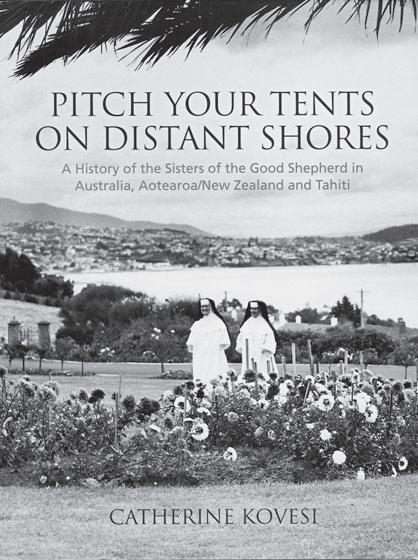
munication and a few misunderstandings later, the sisters settled at the newly built convent and chapel residence on Ruislip Street in Leederville, in 1903, where they have continued to operate from.
Recounting the sister’s establishment in Western Australia, the author aptly captures the spirit of the times and historical context of the state during that era, providing readers with not only an insight into the history of the congregation, but also that of the Catholic Church in WA.
The almost 500 page book was published by Playright Books and can be purchased through Rainbow Distributors by calling: (03) 9481 6611.
 ■ By Robert Enright, Mercatornet
■ By Robert Enright, Mercatornet
The Amish were prepared for the murder of their children last month. They had been building forgiveness muscle.
May we begin with a reflection on a prayer? It is this: “God of forgiveness, do not forgive those who created this place. God of mercy, have no mercy on those who killed Jewish children.” The context of Elie Wiesel’s prayer was a ceremony commemorating the liberation of Auschwitz, where he was imprisoned and experienced fully the evil of Nazi hatred. Having visited a concentration camp in Germany, a heart-rending experience, I could absorb, at best, a thimble-full of the emotion that must have washed over Mr Wiesel that day as he spoke his prayer toward the heavens occasioned by Holocaust horrors. Who could blame him, I thought, as I trod the grounds where the innocents were tortured and massacred.
Having studied the psychology of forgiveness for the past 22 years, I must admit to a certain ignorance at the mystery surrounding the way people respond to unthinkable tragedy. As I write this, the murderous acts of Charles Roberts in the one-room Amish schoolhouse in Lancaster, Pennsylvania on October 2, 2006 are burned into my mind. He admitted feelings of hatred because his own daughter died years ago. Because of this hatred, that had noting to do with the Amish, he murdered and wounded innocent girls in the supposed safety of their classroom. Tragedy - Mr Roberts’ - begot tragedy.
In the days following the horror, the news media seemed stunned by the Amish community’s forgiving acts. Henry Fisher, a 62-year-old retired farmer, tried to explain the forgiveness to the world through the media. “We just do not hate,” he said. “There is no sense in getting angry,” he said. The Amish community gathered for prayer, not only for themselves but also for Mr Roberts and his family. They attended his funeral and set up a fund for his widow, and the world looked on and wondered.
Wouldn’t it be so easy to judge and contrast the reactions of Mr Wiesel and the Amish community following tragedy? For those ambivalent about forgiveness the judgment might go something like this: Continued on Vista 2
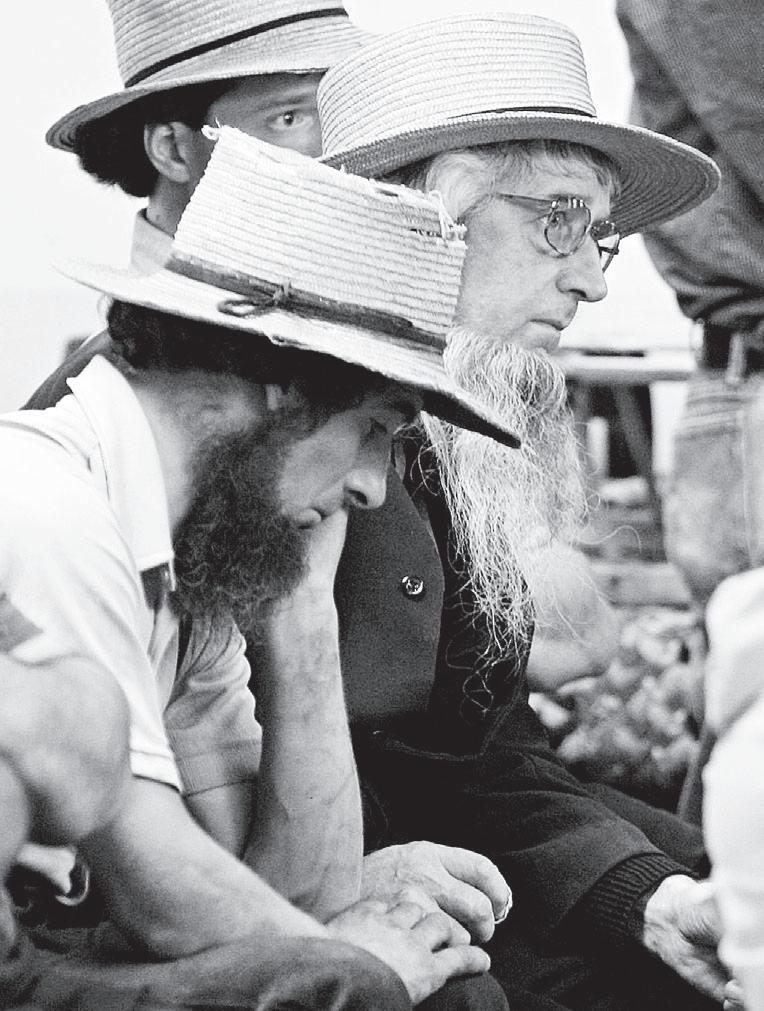
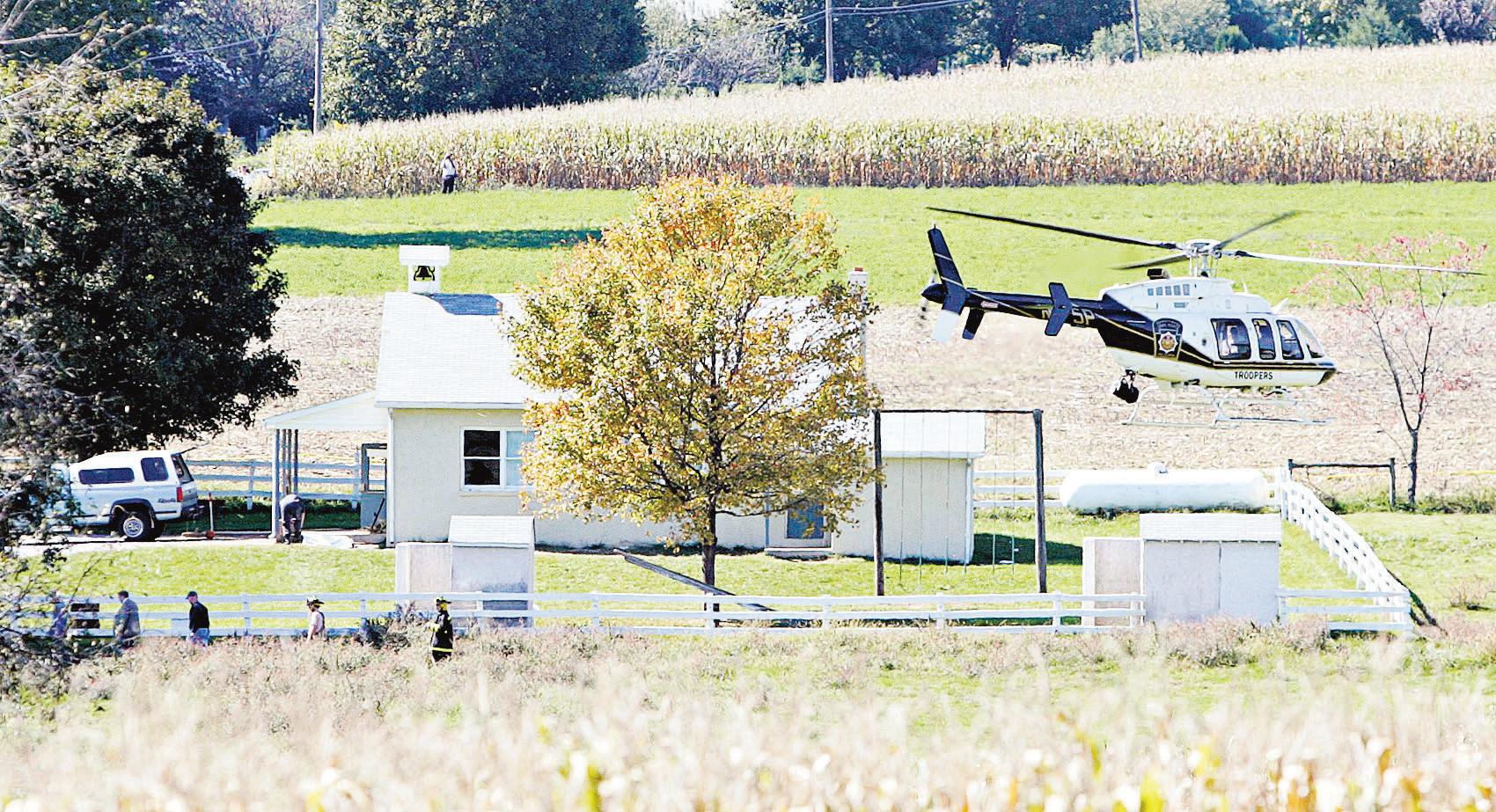
Continued from Vista 1
There is just no way possible for the Amish to have forgiven so quickly. They are in denial or perhaps they are putting up a false front. Time will show them to be just like the rest of us, enjoying at least a pinch of vindictiveness.
Mr Wiesel, in contrast, is a courageous realist. He knows himself, he understands tragedy, and through this path only is there justice and eventual community restoration. For those who embrace forgiveness, the judgment might take the following form: Poor Mr Wiesel.
He has been victimised twice by the Nazis, once in their acts of horror and now by letting their hatred be implanted as deep resentment into his own being. The Amish are approaching grave injustice correctly, with a patient and forthright forgiveness that must be present if community and individual restoration is to ever occur, and the quicker the better.
On which of these two sides do you fall, dear reader? That question, I now must confess, was a trick question, which we professors are at times noted for, especially in our exams. It is a trick question precisely because I forced you into an either-or decision: either you side with Mr Wiesel or you side with the Amish. Why must we think in either-or ways when it comes to forgiveness? From what rule book are we deriving that rule? You see, forgiveness just does not work that way. It embraces a gentle and healing both-and spirit. Please allow me to explain.
Forgiveness belongs to the one offended and it is always his or her free choice whether or not to offer the merciful gift of forgiveness. In the face of injustice, a person offers forgiveness by giving up resentment and offering goodness to the one who acted unjustly. A forgiver is free to offer this gift whenever he or she wishes. You see, someone who is filled with fury today might forgive tomorrow. Mr Wiesel’s pronouncement with cameras rolling and emotions high may or may not have been his final statement on the matter. The human soul is not still any more than the ocean’s waves are. I have seen people want to wring the neck of a murderer, only
to stand in front of the judge begging for mercy for that murderer months later. I cannot explain the mystery of this transformation, but I can report the fact that it occurs.
Mr Wiesel was crying for justice and the Amish were praying for mercy. Both are moral heroes. If we ask for mercy, must we put it within its own hermetically sealed container, lest it be tainted by justice? Or instead, is it possible to co-mingle justice and mercy, asking for both?
Can people forgive execution-style murderers of children and then ask for better protection of those who must start anew in a new school?
Can one cry, “Never again” to statesanctioned hatred and offer mercy once one begins to feel and be safe? Surely justice and mercy, fairness and forgiveness, can lie down together. Some may wish to emphasise justice for a season and it is their choice. Others in that season may wish to centre on forgiveness and it is equally their choice. Do you see how forgiveness flies free, without the constraints of having to follow a rigid guideline for all under all circumstances?
Forgiveness can take time It is not easy and can seem threatening.
If I forgive, might I be vulnerable to the other’s continued unfairness? Not if I see the unfairness and take steps to correct it. If I forgive, must I trust the offender?
No, because forgiveness is different from reconciliation. One can offer the cessation of resentment and the gift of beneficence in forgiveness without entering into a relationship of mutual trust, which would be required for reconciliation. If I forgive, shouldn’t the other apologise first? No, because forgiveness can be lovingly unconditional. Is it not the case that some acts are simply unforgivable? While it is true that some people will not forgive others for certain acts, there are others who will. It is part of the historical record.
Forgiveness seems to travel a certain path toward healing, but people walk that path at different rates and stop at different way-stations as they proceed. One effective and scientifically-validated pathway to forgiveness is spelled out in my book, Forgiveness Is a Choice The gist of that pathway is this: Following
injustice, people tend to get angry (but do not always have and show anger). Following a period in which anger can turn to resentment, some people come to realise that they are becoming imprisoned by the anger. They are restless, losing energy, unhappy. At that point, many people make a conscious decision to forgive, realising that when they do forgive, they are not condoning, excusing, forgetting, or necessarily even reconciling with the other.
Even though some start from a position of self-interest (I am unhappy with my anger), this invariably shifts over time to other-interest (I wish to give the one who offended me the gift of forgiveness).
Next, people begin to think differently about the perpetrator. The forgiver struggles to see the injuring person as someone bigger than the unjust act. The forgiver strives to see the inherent worth, the unconditional value of the other, not because of what happened, but in spite of it. Then comes a softening of the heart, which can take considerable time, in which empathy and compassion for the offender begin to grow. We witnessed that in the Amish response to Mr Roberts and his family. The forgiver then engages in the courageous act of bearing the pain of what happened, so that the anger and related emotions do not spill over into the lives of others. Mr Roberts did not seem to bear the pain of his own daughter’s death and so his pain came pouring out onto the innocents on that tragic day. There are other parts of the pathway, but I will leave those details in the book for now. My colleagues and I have scientifically tested this pathway to forgiveness for people who have suffered grave unfairness, including incest, spousal betrayal, a partner’s decision to abort without the other’s consent, and child abuse, among other situations. In our scientific studies, those who learn to forgive usually become emotionally healthier, characterised by lowered depression and anxiety, and improved hope toward the future. Forgiveness heals.
As the world watched and pondered the Amish outpouring of forgiving love, I said to myself: I see. They have been studying and
Debra Sayce has had a few epiphanies of late, but then a journey to the Middle East can do that to you. She recently wrote a moving account of her experience climbing Mt Sinai in The Record reflecting on a comment made during a Mass on the pilgrimage by Perth’s Archbishop Barry Hickey on what it truly means to say ‘yes’ to God, as Moses did thousands of years ago.
But a more recent event triggered another epiphany for Debra, the director of religious education and faith formation at the Catholic Education Office in Perth.

practising forgiveness for many, many years prior to this tragedy. They prepared themselves by building forgiveness muscle. They were ready for this because they understand the fallen nature of humanity. In our professional experience, most people give forgiveness no thought at all until deep unfairness comes to visit, then they try to find the forgiving path. Knowing that, we started, five years ago, a series of forgiveness education programs in Belfast, Northern Ireland and in Milwaukee, Wisconsin’s central city. Both communities have known violence and unfairness. We want the children to learn about forgiveness
at a very young age and to become more sophisticated in the practice of the virtue of forgiveness as they advance in their schooling. We want for them the forgiveness muscle that may help them to seek and to find a better justice. Forgiveness has a way of making the quest for justice more wholesome and more whole.
OK, readers, if you so choose and are ready for the workout, let’s hit the gym and begin to develop our forgiveness
study of forgiveness
The enduring story of Gallipoli has formed the backbone of what today’s generation think of Anzac Day. And while we can watch the movie, listen to the stories told by sons of Diggers, unless we’ve actually been there and experienced the eerie silence of a Lone Pine where our grandfathers ran into a hail of gunfire we don’t truly realise what this legend is all about. Debra recently experienced that strange sense of peace – engendered, conversely, by the mind-boggling loss of life that had occurred in that same place. For Debra, it was all rather surreal and haunting. The ages of the soldiers on the graves were about the same as teenagers for whom she is partly responsible through her work at the CEO.
“The ages of the boys who had given up their lives on the graves really hit me. I thought, ‘my God, these boys have given up their lives at 14’,” Debra recalled last week. “They’ve died for a purpose –to protect their country, and they believed in it, and they chose to do it. It wasn’t as if they were called up by draft – they volunteered aged 1415-16 and died, but they were not compelled to do it.
“The other connection was at Lone Pine, where one of the Horse Brigades was actually from WA, and that brought it home for me.”
Many teenagers lied about their age to go and fight for King and Country. Whatever the cause, whatever the argument about whether the conflict was justified, the fact is that thousands of mothers lost their boys in a foreign land in a conflict few really understood. It has been described as one of the more imaginative strategies of the First World War, but 15,000 Anzacs were driven back to the beaches by the Turkish 19th Division.
Why did they go?
Russia was retreating before the German armies and appealed to their allies for assistance. Gaining control of the Dardanelles would re-establish communications with Russia and release wheat and shipping locked in the Black Sea by Turkey. Before the war British strategists had for many years believed that the best defence of Egypt and the Suez Canal was an attack on Turkey. British naval commanders came to the conclusion that they could not force their way through the Dardanelles and attack Istanbul unless troops were first sent to occupy the Gallipoli Peninsula to silence the Turkish guns. Planning for the landing of troops on Gallipoli had started.
For Debra, who was born in Calcutta, the conflict had extra significance as both her parents were Indian – and as India was part of the Commonwealth, its soldiers fought with the Allies. As a mother,
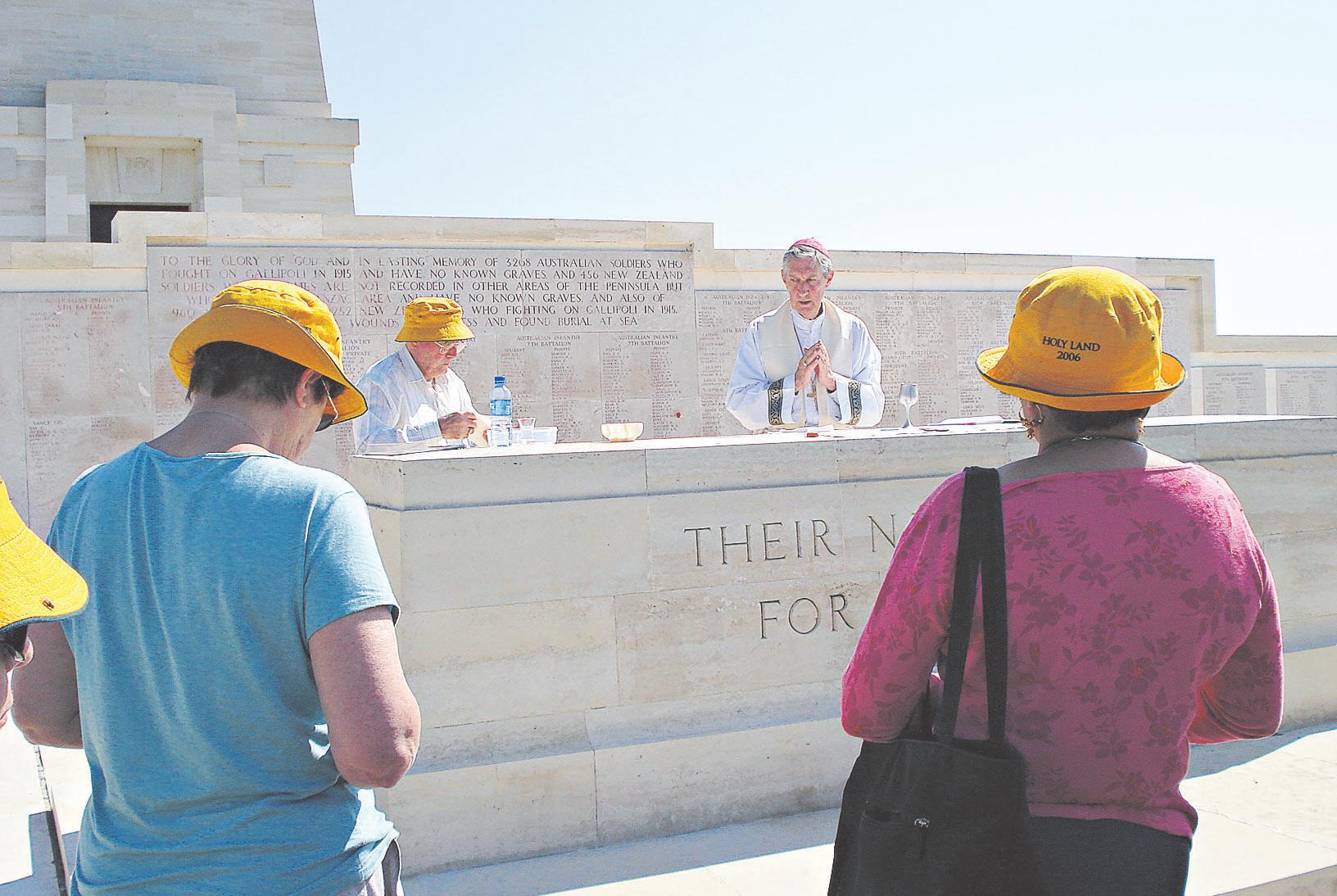
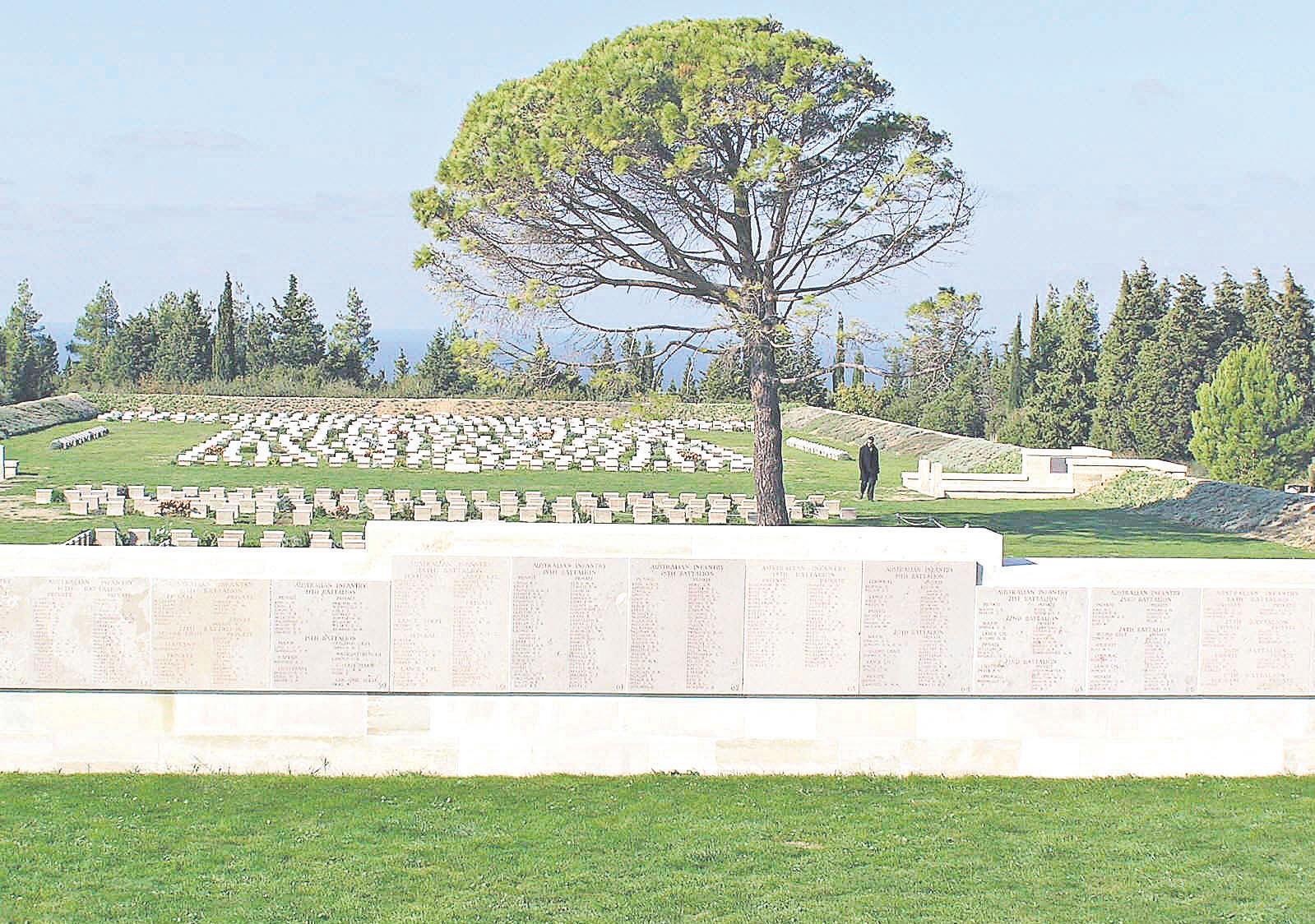
Debra was chilled to read a tribute to those killed at Gallipoli by Mustafa Kemal Ataturk:
“Those heroes that shed their blood and lost their lives ... you are now lying in the soil of a friendly country. Therefore rest in peace. There is no difference between the Johnnies and the Mehmets to us where they lie side by side now here in this country of ours. ... You, the mothers, who sent their sons from faraway countries, wipe away your tears; your sons are now lying in our bosom and are in peace. After having lost their lives on this land. They have become our sons as well.”
“It was such a poignant statement,” Debra said. “It was one country embracing another country and the loss of life.
“They’re fighting each other face to face and killing each other, and there’s a mutual understanding. Mothers from both sides lost sons.
That was to me the most poignant statement.
“The other thing was – I don’t like war. My dad was in the military but I never appreciated why countries wage war.” But after her visit she now understands better why the Anzac spirit is so central to the character of being Australian. It is a similar sentiment to the words written in pencil on a page torn from his despatch book by Colonel John McCrae, who was a Professor of Medicine at McGill University of Canada before Word War One and who served as a gunner in the Boer War, which Australia was involved in:
In Flanders Fields the poppies blow Between the crosses row on row, That mark our place; and in the sky The larks, still bravely singing, fly Scarce heard amid the guns below.
We are the Dead. Short days ago
We lived, felt dawn, saw sunset glow, Loved and were loved, and now we lie In Flanders fields.
Take up our quarrel with the foe: To you from failing hands we throw The torch; be yours to hold it high. If ye break faith with us who die We shall not sleep, though poppies grow In Flanders fields.
“It’s such a statement,” she said of Ataturk’s tribute. “And I’ve always presented Flanders Fields to the kids at school as well. You can’t glorify war, but it’s important we don’t forget the dead – lest we forget. We cannot forget what they’ve done.
“It’s acknowledging that these people left their country going into a situation knowing that death is there and thinking, ‘I could die for my country’. Not that I’ve ever had to be in that situation, but they are facing that and they choose to go and fight for that cause.
“They’re so passionate and so committed to the actual cause.” Her visit, she says, clarified the Diggers’ sense of patriotism and nationhood, of being Australian. It is in stark contrast to her impression of youth today. “There’s no way teenagers would have the desire to go and do what our teenagers did in the First World War,” she says. “I look at it from it from a mother’s perspective – the child went to war and the child dies when there was a choice not to go.
“I have a 10-year-old daughter. That’s why when I saw that memorial that pledged a promise to the mothers whose sons had lost their lives, it really hit me. Maybe it’s my maternalism, maybe it’s because of my sense of the futility of it all, but as a mother it was an important statement.” Debra found Lone Pine, where Archbishop Hickey celebrated Mass for the Australian pilgrims, a “very quiet, tranquil, peaceful place”. “You could just be still and think ‘what happened here?” she recalled. As they prayed for people in world wars, Debra found a profound sense of peace, especially when pilgrims got up and spoke movingly of their own relatives who had been involved in conflicts.
“You see movies and you think you have a sense of what it’s like, but it was incredible that we were standing on the actual sand, the actual area they tried to run over,”
Debra said.
“That was quite profound. I know from our Catholic tradition, how it draws on us to deepen our faith and our whole experience of being in touch with Jesus, and God, it’s special.
“There was a great familiarity about our tradition – we know that we do pray for our dead. We prayed for a man who had gone into heart surgery, so we knew that the intention of that Mass was for his wellbeing, and there’s great comfort in that.
“I take great solace in knowing that we do this, and people expect it.”

Two facts about the Iraq war have become markedly significant in recent days. The first is that the war has caused a collapse in the Republican Party vote in the United States.
The second is that the danger to Iraqi Christians has increased as a result of the war sparked by the Coalition invasion in March 2003.
The request by Iraqi Christian leaders to the US bishops not to launch a public campaign to bring attention to their persecution by Muslim extremists, for fear that such a campaign would make their serious situation even worse, speaks eloquently of this danger.
The importance of Iraq to the recent US election results was demonstrated by the fact that within two days of the ending of the polls, the US Defence Secretary, Donald Rumsfeld, had resigned. Mr Rumsfeld had been criticised many times for his direction of the Iraq war, particularly as media reporting of the casualties of the war became more pronounced in 2004 and 2005. Despite these criticisms, President Bush had repeatedly defended his Defence Secretary.
Now, the Secretary has departed, accompanied by a general chorus of political opinion in Washington, the principal voices of which are conservative Republicans denouncing Mr Rumsfeld’s “management” of the Iraq war.
The gist of conservative criticism has been that the war itself was not a mistake: only the way in which it was managed was. When this argument is brought down to brass tacks, what it is really saying
is that the war as it was conceived in Washington was wrong. Sadly, American foreign policy in the past has given too many grounds for believing in the American leadership’s failure to understand significant realities about foreign parts of the world. Iraq is one such part.
To say that Americans in general have little understanding of Middle Eastern culture is to say something not particularly surprising. What is more surprising, and perhaps, for some, impossible to believe, is that American foreign policy intellectuals have no understanding of the world beyond their shores. Yet sadly, this is the case, as demonstrated by the Iraq war.
American foreign policy intellectuals did not understand that by removing the hated Saddam Hussein, a power vacuum would be created in Iraq which could only be resolved in one way, according to Middle Eastern tradition. That way is bloody violence.
What makes this entire debate poignant is the plight of Iraqi Christians. Under the mantle of Western and even “Christian” values, a war was waged by the United States, with Australian and British support, to create a more humane society in Iraq.
One of the most human aspects of that troubled part of the world, traditionally, has been Iraq’s long Christian tradition. Christians in Iraq include Chaldeans (Eastern rite Catholics who recognise the Pope’s authority,) Assyrians, Syrian Catholics, Armenian Orthodox and Armenian Catholic Christians, Greek Orthodox and Greek
Catholic Christians, Anglicans and Evangelicals. Such Christians have survived, with difficulty, under predominantly Islamic rule, for centuries. Since the unleashing of the vacuum of violence following the destruction of Saddam’s regime, these Christians are now being actively persecuted. Some of the stories we have heard here in Australia from Christian refugees from Iraq not only touch the heart, but also illustrate this tragic error of Bush War II. The major argument which continues to be used to justify the Iraq war in the West is that it has introduced democracy. The high voter turnout at elections after the handover of power to the present Iraq government has been taken as a vindication and proof of this principle. In fact, it is nothing of the sort. The high voter turnout reflected, rather, the mastery of politics in the region by Shi’ite Iran. The majority Shi’ites of Iraq have long felt themselves to be under the heel of non-Shia rulers such as Saddam. The election was an opportunity for them, through weight of numbers, to seize control of the new Iraq. In this they were not only encouraged but were actively assisted by nearby Iran, that friendly Islamic revolutionary regime which stones women to death. The rise of Shi’ite influence in Iraq will hopefully not be the end of the story for Iraqi democracy. At this point, and given the recent heavy involvement of Iran in international wrangling over nuclear weapons, and its support for Hezbollah in Lebanon, one can only hope and pray.
In his column in Sydney’s Sunday Telegraph newspaper on October 22, Cardinal George Pell appealed on behalf of the Sabean Mandaean religious sect in Iraq. This is a sect claiming descent from John the Baptist. As a small minority in Iraq, the Sabean Mandaeans have been regularly oppressed and persecuted over the centuries, with five “huge massacres or pogroms of their people since 1870,” Cardinal Pell wrote.
The Cardinal pointed out that this sect is now caught up in the civil war. He pointed out that “Iraqi Christians have also been battered with 13 churches destroyed, and numerous church buildings, including the finest bishop’s house in the Middle East, at Mosul, badly damaged.” Cardinal Pell’s column gave an insight into the realities of postwar Iraq. “The position of minorities in Iraq is drastic, although most victims are Muslims and no-one is safe when gangs rule and the police are complicit or helpless. However while Christians can return to their historic villages in the Kurdish region, Mandaeans are not welcome there.”
It is uncertain whether anything that happens in Iraq will have comparable effect in any future Federal election in Australia. But the claims of conscience, represented by the sufferings of Christians in Iraq, and the need for Australians to think hard for the future about the consequences and the desirability of entering wars at the bidding of another nation - even our closest ally - now warrants the close attention of all.

There is a moment in the biopic Karol, a film on the pre-papal life of John Paul the Great, when everything else falls away and the man’s humanity, his intellect and his great heart come through.
The young priest, then a university lecturer, has taken his class to the mountains for a weekend of canoeing, hiking and camping.
The Polish countryside is rich with life, the young people are vibrant and the priest, relaxed in shorts, an open shirt and a warm smile follows their conversation into a frank and life-affirming discussion of human sexuality.
The good Pope this young priest would become and his remarkable ideas on sex and life are alive in the new document from the United States Conference of Catholic Bishops - Ministry to Persons with Homosexual Inclinations: Guidelines for Pastoral Care.
The document was approved by an overwhelming majority at last week’s national meeting of the US hierarchy and will guide the way the Church in the US deals with same sex attracted men and women on a pastoral level. It should be instructive across the English-speaking Church.
Its implications, however, will
ring out far beyond merely administrative intra-Church affairs.
This is because the US bishops have, right when it is needed most, managed to translate some of the more legalistic and thorny aspects of the Vatican documents on the same topic into pastorally relevant, doctrinally rigorous, plain English.
From the outset, the Bishops are keen to point out that, contra many homoactivist groups and the wider non-Catholic media, the Church does not condemn homosexuals per se, not even loving relationships between people of the same sex.
Rather, as was clear from other Vatican documents, she condemns homosexual acts and, while describing the inclination to such acts as against the moral order - or ‘objectively disordered’ in Vaticanesemakes it clear that the Church:
“...does distinguish between engaging in homosexual acts and having a homosexual inclination. While the former is always objectively sinful, the latter is not... Although one would be morally culpable if one were voluntarily to entertain homosexual temptations or to choose to act on them, simply having the tendency is not a sin. Consequently, the Church does not teach that the experience of homosexual attraction is in itself sinful.”
Emphasis mine, enlightenment purely Catholic! This position, restated clearly in English by the US bishops, tears apart the main homoactivist argument against the Church’s position: that she condemns all same sex attracted individuals out of hand.
Indeed she describes them here and elsewhere as being like any other human being, subject to judgment based on the acts we commit and the thoughts we voluntarily entertain.
This means that, in the words of the Confiteor, a sometimes same sex attracted Catholic like me will be held accountable ‘for what I have done and what I have failed to do’. Fair enough.
The US bishops go on to indicate that a number of sexual acts deemed permissible in the West: contraception, fornication, adultery, masturbation, etc. are also considered morally disordered in Catholic teaching.
Again, the US bishops trump their critics by demonstrating that theirs is not a bitter attack on same sex attracted men and women, rather the teaching on homosexual acts is part of a wider, humane understanding of the ends of human life and the agency of love in sex, and sex in love and procreation.
Indeed, at another point the US bishops discuss ‘therapies’ for
homosexuality, which is another obvious sticking point between the Church and her secular critics, with a healthy amount of skepticism and detachment.
In an earlier draft leaked to me from a US source they included a sentence that indicated that there was no moral obligation for individuals with a same sex attraction to try out such therapies.
The sentence is gone from the issued document, but the idea remains.
It is an extraordinary document at an extraordinary time for the Church and the world.
All men are called to a discipleship in self-discipline. All Catholics are called to chastity, whether they are same sex attracted, married, single, ordained or vowed religious.
All children of God are deserving of respect and love, as the US bishops reiterate again and again in this document.
It would be wonderful if this latest fruit of John Paul’s humane legacy, his monumental Theology of the Body, imbued as it is with a deep respect for life and a fresh, frank approach to love and sex were received in the wider world with openness and honesty.
The US bishops have certainly demonstrated that much and more in this document for their same sex attracted brothers and sisters.
Chaldean priest feared kidnapped in Iraq
The Chaldean Church fears that a parish priest in Baghdad, missing since Sunday, has been kidnapped.
There has been no news of Father Douglas Al Bazi, pastor of the Mar Eliya Church.
The priest’s disappearance was confirmed by Chaldean sources, as well as by other Catholic news agencies, including AsiaNews and the Italian bishops’ SIR agency.
“His mobile phones are disconnected and nobody, not even in the Chaldean Patriarchate, has heard anything of him since he left the church by car and without an escort,” revealed Baghdadhope.
Father Al Bazi has been the victim of violence several times. On January 29 he survived an attack against his parish church, Mar Mari, in the north of Baghdad.
On February 23 he was wounded by a bullet in an attack by gunmen who fired against the church.
Benedict XVI to publish book on Jesus
Pope Benedict XVI has finished the first part of a book entitled Jesus of Nazareth: From the Baptism in the Jordan to the Transfiguration, which will be published later this year.
The announcement was made this week by the Vatican Publishing House, Libreria Editrice Vaticana.
In the preface, passages of which have been issued, the Pope writes that this work “in no way is an act of the magisterium, but only an expression of my personal search for the face of the Lord. Therefore, anyone is free to contradict me.”
At the request of Benedict XVI, a dossier on the question of condom use to prevent the transmission of diseases such as HIV/AIDS has been submitted to the Congregation for the Doctrine of the Faith.
Cardinal Javier Lozano Barragán, president of the Pontifical Council for Health Care Ministry, announced the completion of the study at a press conference to present the council’s upcoming conference on “Pastoral Aspects of the Treatment of Infectious Diseases.”
The question is now in the hands of the doctrinal congregation, Cardinal Lozano explained, “because our pontifical council does not have doctrinal but pastoral tasks.”
Bartholomew I urges Turks to respect Papal visit
Ecumenical Patriarch Bartholomew I of Constantinople urged Turks to respect the Pope’s visit to their country, given the statements and threats of radical groups to boycott the trip.
In an interview published in the Turkish newspaper Sabah, the Orthodox patriarch said that Benedict XVI’s visit from November 29 to Dececember 1 will be a great opportunity for Turkey.
One of the Pope’s objectives is to meet with Bartholomew I in Istanbul, formerly Constantinople. The meeting between the Catholic and Orthodox Church leaders is scheduled for November 29. - Zenit

Social networking websites like Bebo and MySpace are a common feature of teenagers’ lives. How should parents react?
■ By Luisón LassalaThe social networking website
Bebo has just celebrated its first birthday. Already it is the most popular social website in the UK, the fourth most accessed site in the UK and the second in Ireland.
Similar sites are mushrooming throughout the internet. MySpace is the best known, but Orkut, Facebook, Xanga, Friendster and many others have scores of millions of users worldwide.
With so many young people involved, it is no wonder that sometimes things go wrong, awfully wrong. We have all read headlines like: “NZ teen sells drugs through Bebo”, “13year-old Californian girl victim of intense abuse through MySpace”, “Belfast authorities dismayed at sectarian violence found in some Bebo sites”, “Dublin rapists lure girls to party with Bebo”, “Misuse of Facebook forces college in New Jersey to expel student”, “Government department in Brazil accuses Google of facilitating criminal activity through its social website Orkut”.
Such is the concern expressed by parents and educators that two senior executives of California-based Bebo, Michael Birch, the founder and CEO and Rachel O’Connell, the Chief Safety Officer, are visiting the UK and Ireland at present to meet police and social community groups.
Apart from worrying, many parents are puzzled. What’s the attraction in this alternative universe? “Because it’s fun!” according to Michael Birch. Perhaps there’s little more to it than that.
Teenagers and young adults love sharing stories, showing off pictures, making comments and gossiping, making friends, listening to each other’s playlists, watching funny video clips made by their mates, and so on. They can create their own universe and view other personal universes. The site belongs to them, not to some unfriendly webmaster.
Social networking websites are addictive. Young people can spend three or four hours at one sitting trawling through their favourite. Now that they can also watch videos which have been posted on the site, users have access to hours of entertainment while they wait for replies to their comments and blog entries – or just in case no one bothers to reply. The time
wasted is incalculable. One teenager posted a wail of regret: “Why, oh why was Bebo ever invented? I don’t even want to think about how many hours of my life it has now consumed.” At least she was honest.
How should parents react?
They come in different forms and carry different content, but whatever the shape, these sites are here to stay. Parents and educators cannot afford to bury their heads in the sand - especially if these novel means of communication have so great an influence on the young people in their care. The alternative is surrendering their education and safety to God knows whom.
The lurid side of websites like Bebo and MySpace has been widely reported - young people receive or gain access to inappropriate material, become vulnerable to bullying, can easily fall into the clutches of predators, and so on. Under pressure from media and parents, companies like Google, which owns Orkut, MySpace and Bebo have been implementing safety measures to minimise the abuse.
Most consist of reporting mechanisms back to head office (or even directly to police) when witnessing or experiencing abuse, with a response guaranteed within a day. This is still largely theory. What’s even more urgent is something to prevent under-age use (Bebo limits the age at 13, Orkut and MySpace at 14) or falsification of age by paedophiles posing as teenagers.
But even if it were possible to shelter young people from the bullies and criminals, there is a more insidious problem inherent in the medium. Living on social networking sites impairs the formation of young people’s character:
• They foster curiosity, vanity and jealousy. The sites basically constitute a gigantic popularity contest.
• They encourage dishonesty: you can provide any age that suits your purpose, and you can fantasise about your weekend – who is to know what really happened?
• Users tend to live in their own little world, and excessive use can make them forget how to behave properly in the company of others.
• They discourage deep and reflective thinking - not to mention proper spelling!
• Most importantly, they become a real obstacle for genuine empathic communication.
Although many teenagers now use social networking websites to make friends, they miss out on a key aspect of genuine friendship, empathic communication.
At a computer screen, using broken and coded language, you cannot see, hear or touch
or experience the feelings of another person. Even webcams are hardly a substitute for a face-to-face relationship. This feature could ultimately have serious implications for the future of society.
It is important nowadays to foster face-toface relationships in the home and elsewhere: having meals together or going on outings with family and friends, playing team sport or even just watching TV together and discussing it afterwards.
The companies will never do anything to help teenagers to develop socially in the real world. In fact, they are working to make their sites even more addictive - soon it will be possible to access them from mobile phones. Many parents already make the mistake of allowing unrestricted access to the internet in their children’s bedrooms. Access through a mobile will make it even more difficult for them to monitor what is going on.
So what can concerned parents do? A lotbut don’t expect that it will be easy.
First of all, teenagers should be warned of the dangers. A few horror stories are usually sufficiently intimidating to deter a youngster from providing a phone number or address and other personal information to strangers or from accepting as friends in their site people they have never met in their lives.
Young people need to take into account, too, that anything nasty they write or post on the internet could boomerang. Prospective employers are screening new recruits based on searches of social networking websites. (Entrepreneurial geeks have launched a counterstrike with a company, ReputationDefender, which removes incriminating material - for a fee, of course.)
Parents should also learn how to access the site. This isn’t spying; they are just reading what millions of strangers are also reading. If a child knows that her mum or dad is savvy enough to take a look, they might think twice before posting or sharing inappropriate material. As shock therapy, try calling your child to breakfast one morning by her MySpace username and see how she reacts.
Parents and educators need to form the consciences of those under their charge. If they want to, young people will find a way to circumvent parental controls and to crash through safety barriers. So the most effective way to protect them against inappropriate technology is to teach them how to use their freedom well. If they genuinely want what is beneficial and suitable and spurn what is degrading and harmful, they won’t be sucked into the virtual world created by Bebo and its buddies.


Spokesman delivers blunt message affluent societies may be not so ready - or keen - to believe: abuse is not just limited to high-profile cases involving clergy. It exists at a far wider level in society.
■ By Carol GlatzVATICAN CITY (CNS) - The sexual abuse of children by priests is only “the tip of an iceberg” of the wider scope of abuse perpetrated against the world’s children, a Vatican official said.
US Archbishop John Foley, head of the Pontifical Council for Social Communications, said there is “a
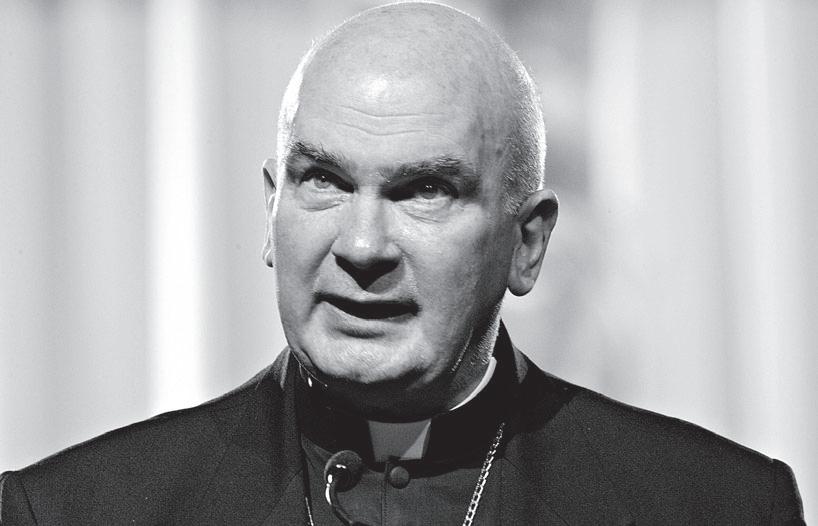
much wider and even more tragic story of child abuse that takes place, first of all, in the family and then, in many ways, throughout society.”
Archbishop Foley made the remarks on November 20 during a film festival in Bucharest, Romania, dedicated to children. November 20
Benedict XVI aims for precision in using translations of original texts
■ By Jerry FilteauWASHINGTON (CNS) - By a personal decision of Pope Benedict XVI, priests in future years will begin to say Christ’s blood is poured out “for many” instead of “for all” in the words of consecration at Mass.
The change simply reflects more accurately the normative Latin phrase “pro multis” and does not signify any change in Catholic teaching that Christ died for all.
“It is a dogma of faith that Christ died on the cross for all men and women,” Cardinal Francis Arinze, prefect of the Vatican Congregation for Divine Worship and the Sacraments, said in an October 17 letter to presidents of bishops’ conferences around the world explaining the decision to require a literal translation of the Latin text.
The letter was published in the
United States in late November in NewsLetter, a publication of the US bishops’ Committee on the Liturgy. Cardinal Arinze indicated no changes should be made immediately.
He called on bishops’ conferences in countries where “for all” is the current translation to “undertake the necessary catechesis of the faithful on this matter in the next one or two years to prepare them for the introduction of a precise vernacular translation.” He added that this translation is only to be introduced “in the next translation of the Roman Missal that the bishops and the Holy See will approve for use in their country.”
Since the Second Vatican Council permitted translation of the Roman Missal from Latin into modern languages for use in the liturgy, many translations used “all” instead of “many” in their translations of the Latin word “multis.” The French version said “pour la multitude” (“for the many” or “for the multitude”), but the German version was “fur Alle,” Spanish was “por todos los hombres,” Italian was “per tutti,”
and Portuguese was “por todos homens” - all various ways of saying “for all” or “for all people.”
Cardinal Arinze’s letter noted that his congregation, working with the Congregation for the Doctrine of the Faith, had consulted with heads of bishops’ conferences around the world in 2005, seeking their views on the proper translation of “pro multis.”
Cardinal Arinze said the doctrinal and worship congregations studied the replies and reported their findings to Pope Benedict. He said his letter affirming “for many” as the proper translation was being transmitted at the direction of the Pope.
Archbishop Albert Malcolm Ranjith Patabendige Don, secretary of the worship congregation, told Catholic News Service that it was “the Holy Father’s personal decision” to require the more literal translation of the Latin.
In his letter Cardinal Arinze said, “The Roman rite in Latin has always said ‘pro multis’ and never ‘pro omnibus’ (for all) in the consecration of the chalice.”
also marked Universal Children’s Day, established by the United Nations to promote the welfare and rights of the world’s children.
In his speech, released the same day by the Vatican, the archbishop said “the violation of children’s rights is one of the contemporary sins crying out to heaven for vengeance.” Much media attention has been given to the sexual abuse scandals against minors perpetrated by clerics in the United States, Canada and Ireland, but, he said, those “heinous crimes” are “but the tip of an iceberg.”
He said children often are subject to abuse within their own family, social sphere or schools.
“The innocence of children should be protected at all costs,” he said, adding that “we should all be free to hear their laughter, to watch them at play, and to see
them running securely in our streets.” Children need to witness Christ’s “loving and saving message” through the living example of the “love and self-sacrifice” of their parents, family, neighbours and teachers, he said.
He urged that children be taught tolerance so that they “never become bullies or baby bigots because of the bad example of their elders or because of the images they have seen in films or on television.”
He asked the film and television industries to help protect the world’s children, to maintain their innocence, keep them from harm and encourage their creativity.
“We must learn from the media how to prevent children from becoming victims of predators in society and even of the very media which report their plight,” the archbishop said.
ROME (CNS) - A Catholic university should be a place where experts from a variety of disciplines work together to benefit individuals and humanity as a whole, said a top Vatican official.
With its theological and philosophical foundation applied to questions of economics, law, human rights, justice and peace, Catholic social teaching is a field made for interdisciplinary cooperation, said Cardinal Tarcisio Bertone, Vatican secretary of state.
In a written message to a November 17-18 meeting of representatives from 150 Catholic universities from around the world, Cardinal Bertone said Pope Benedict XVI applauded their efforts to ensure that scholarly specialisation did not lead to a “fragmentation of knowledge” in which experts in different fields each claimed to know the whole truth.
When a scholar focuses on “a tiny sector of pertinence” and lacks knowledge in other fields and a practical experience of dialogue
with other scholars, he or she can lose perspective, Cardinal Bertone said. No field of knowledge holds all the answers to the question of who the human person is, how to help the individual reach more of his or her potential and how to shape a society that respects human dignity and promotes human development, he said.
“The social teaching of the Church can contribute to providing a basic guiding framework for diverse disciplines, helping them collaborate in full respect for their specificity,” the cardinal said.
Cross-disciplinary cooperation, he said, can result in greater wisdom, as well as ensuring that study and research do not simply produce more knowledge but also lead to greater creativity for solving the problems humanity faces.
The Rome conference was sponsored by the Congregation for Catholic Education and the Pontifical Council for Justice and Peace, which is holding a series of meetings and conferences around the world to promote use of the Compendium of the Social Doctrine of the Church.
Zenit.org - Slavery is not a thing of the past, but rather a scourge that continues to exist, even in developed countries, was the message of a conference in Rome.
Earlier this month the Mercedarian Family held its first international congress on the theme “The Slaveries of the Third Millennium and the Mercedarians’ Response.”
The Order of Our Lady of Mercy was founded in 1218 by St Peter Nolasco in Barcelona, Spain, fol-
lowing an apparition of the Blessed Virgin. The Mercedarian Family, born with the fundamental task to liberate Christian slaves from the Muslims, has generated a series of institutes inspired by the charism.
The purpose of the congress held on November 10 was to demonstrate that “slavery is not a monstrosity of the past from which we have definitively liberated ourselves, but something that continues to exist throughout the world, including in developed countries such as France, the United States and Italy,” the organisers said in a statement.
According to the Mercedarians, “added to traditional slavery and the slave trade, is the sale of children, prostitution and child por-
nography, the exploitation of child labour, sexual mutilation of girls, the use of minors in armed conflicts, slavery caused by debt, the trafficking of people and the sale of human organs, exploitation of prostitution, and certain practices of colonial and ‘apartheid’ regimes.”
The congress paid much attention to the trafficking of organs.
Father Dámaso Masabo, procurator general of the order, said: “The sale of organs in China is a very lucrative market - US $62,000 will buy two kidneys, $15,000 two lungs, and $30,000 a cornea.”
“Also in Asia, in Pakistan, more than 6,500 kidneys are sold a year,” he added. “According to the data gathered, in 2005 more than 1,000
corneas were exported to different countries around the world.
“Recent investigations in the European Union have shed new light on the market price: The sellers - the majority Moldovans or Bulgarians - sell a kidney for €1,900 to €3,800. The buyers have them implanted in Istanbul for €100,000 to €180,000.” The Mercedarians’ procurator general then gave some figures related to the trade and exploitation of the new slaves.
“More than 270 million people live subjugated at present in the world, a figure that exceeds the 11.698 million deported [and] captured in Africa between 1450 and 1900,” he said. “An additional 200 million children are exploited. There
are more than 50 million in Asia alone.” Father Masabo also spoke about the scourge of prostitution.
“At present it is estimated that there are between 50,000-70,000 women from East Africa, Latin America and Eastern Europe, who live and work on the streets of Italian cities, or in night spots,” the priest said. “Of these, 30 to 40 per cent are minors, between 14 and 18 years old.”
The Mercedarian Family understands by situations of slavery “any person exposed to a state of vulnerability through physical or moral pressure, having the obligation to work without being remunerated, in a context of privation of freedom and contrary to human dignity.”


World AIDS Day will be marked on December 1.
■ By Barbara J. FraserLIMA, Peru (CNS) - In the “Posada del Buen Pastor” - the Good Shepherd Inn - a dark-haired toddler gives Sister Celina Jugo a big smile before grabbing an assistant’s hand and heading for the garden.
Sister Celina’s own smile is tinged with relief. When the Posada opened in December 1996, the Good Shepherd Sisters who ran it knew their HIV-positive charges would probably die young.
The home grew out of the nuns’ work with HIV-positive women.
“The women died and the children were left behind,” Sister Celina said.
At the time, there was virtually no access to treatment. Every year, two or three children died. That has changed since antiretroviral drugs became widely available in this Andean country three years ago.
“In the past five years,” she said, “not one has died.”
In Peru, children are the hidden face of HIV/AIDS. Official statistics are scarce, largely because children are covered by a government insurance program in which each hospital keeps its own statistics, said Lidice Lopez Tocon of the Collective for Life, an umbrella organization of groups of people living with HIV/AIDS and groups that assist them.
The San Camilo Home in down-
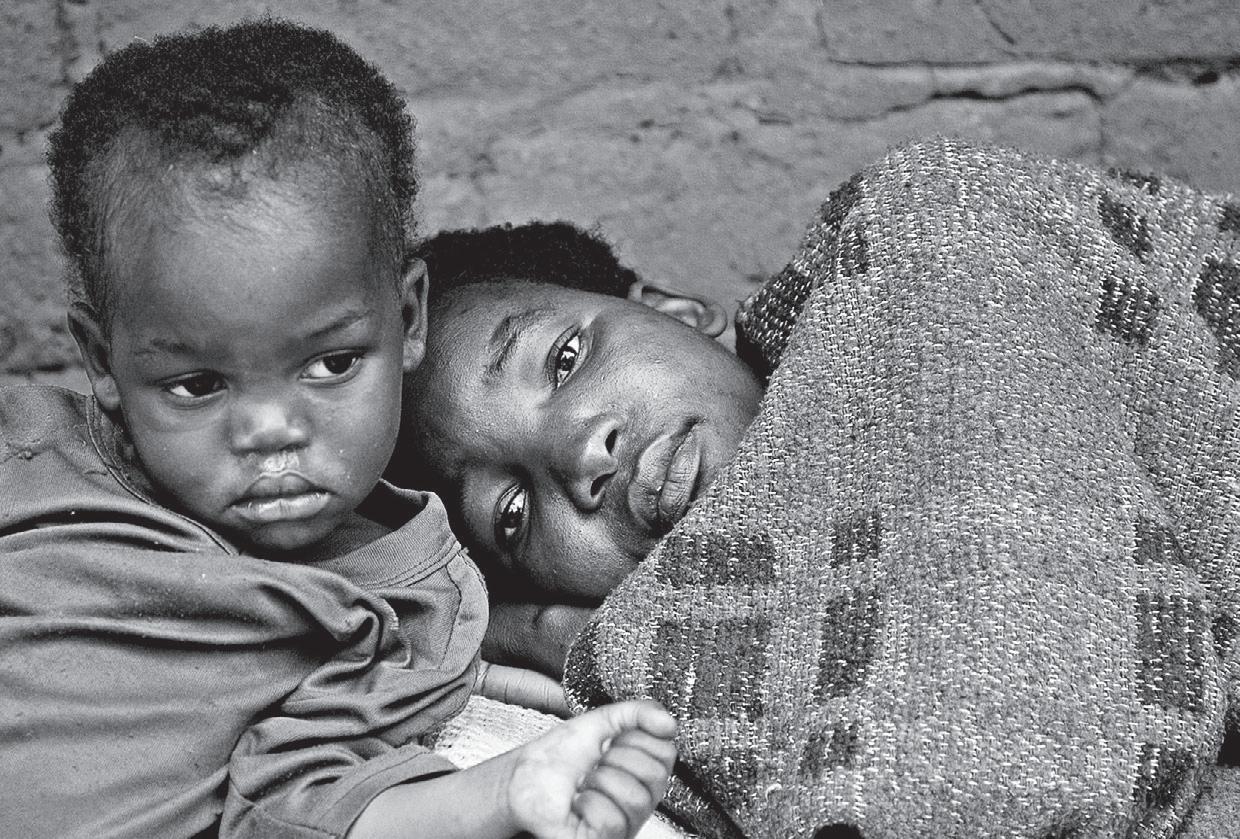
town Lima provides milk, early childhood stimulation, meals and other assistance to more than 350 children and scores of pregnant women. Camillian Father Zeffirino Montin, director of the home, said about 300 HIV-positive children are registered with the government’s child health insurance program, “but there are no clear statistics.”
Many children lack identity documents and therefore cannot get health coverage through the government program.
The San Camilo Home works
intensively with HIV-positive pregnant women, teaching them about the importance of protecting their babies by getting treatment during pregnancy, having a Caesarean section and not breastfeeding, “so the child is born healthy - not only without HIV, but also without other illnesses,” Father Montin said. In Latin America overall, the infection rate among children has decreased since 1990. Of the 62 women who participated in the San Camilo program in 2005, he said, only two gave birth to HIV-positive babies. Both
were in their last weeks of pregnancy and had heavy viral loads when they entered the program.
Sometimes there is a fine line between childhood and adulthood. Father Montin recalled a 14-yearold girl who came to the San Camilo Home. She was HIV-positive and pregnant.
The priest estimates that about 18,000 children in Peru have been orphaned by AIDS - a small percentage of the estimated 2 million in Latin America and the Caribbean, but a vulnerable and virtually invis-
ible group that is not targeted for government social services.
The Order of St Camillus opened a home for orphans in the southern highland city of Arequipa earlier this year and plans another on the outskirts of Lima. The homes will also serve as temporary shelters where HIV-positive children can regain strength before returning to live with relatives.
Although Father Montin worries about whether the houses will be able to make ends meet, he believes more attention must be paid to children affected by HIV/AIDS.
“The orphans’ world is the most precarious world, because orphans, even when they don’t have the virus, lack the thing that is most important for their lives, which is love,” he said.
Most children orphaned by AIDS in Peru end up living with grandparents, he said, and when the grandparents die the children face a bleak future. For HIV-positive children, money that would be spent on an education goes to purchase medicine.
When the Posada del Buen Pastor, which is home to 37 HIV-positive children from toddlers to teens, was founded, the sisters’ young charges rarely made it to adolescence. Now, Sister Celina has to think about vocational training for the teenagers, so they can earn a living in a country where jobs are scarce.
“It’s a revolution,” she said. “The most rewarding thing has been to see the children running and jumping around. They may destroy everything in the house, but I prefer that, because they’re healthy.”
WASHINGTON (CNS) - Dozens of members of the new US Congress joined several pro-life organisations on November 20 in urging Amnesty International not to embrace policies on abortion that they described as “antithetical to ... our shared duty to protect.”
The international human rights organisation is consulting its 2 million members in 74 countries over whether it should “expand its policy on sexual and reproductive rights,” according to a November 20 Amnesty statement.
The release said that under discussion is whether to develop policies on access to health care related to complications from abortion; access to abortion in cases of rape, incest, sexual assault or risk to the woman’s health; and removal of criminal penalties for abortion providers and those who seek abortions. A November 15 letter signed by more than 70 members of the House of Representatives said “it is not possible for Amnesty to justify any position that condones abortion based on international human rights law while at the same time objectively adhering to legal instruments and processes. No United Nations human rights treaty or convention recognises a so-called right to - or even addresses the issue of
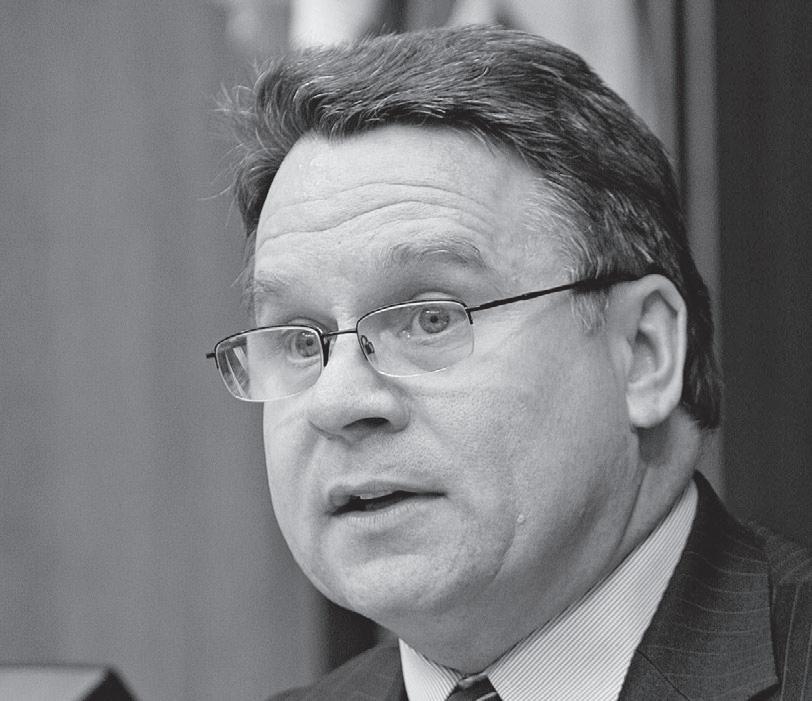
- abortion.” At the November 20 press conference, Chris Smith, the chairman of the Congressional ProLife Caucus, read from the letter: “The killing of an unborn child by abortion can never be construed to be a human right. Every child, born or unborn, deserves protection and to have his or her human rights secured and protected.”
Kristen Day, executive director of Democrats for Life, said Amnesty
International “has done a tremendous job of defending human rights around the globe.” But instead of the policies now on the table, Amnesty should be focusing on defending women who are forced to have abortions, she said. “A poor decision on this issue would hamper their ability to do good” on other policies.
Amnesty has long worked to assist women who are forced to
have abortions. Forced abortion is one of the topics addressed in its Stop Violence Against Women campaign. Deirdre McQuade, director of planning and information for the US Conference of Catholic Bishops’ Secretariat for Pro-Life Activities, reiterated the position taken by Bishop William Skylstad president of the US bishops’ conference, in a September letter to the secretarygeneral of Amnesty International.
Bishop Skylstad said that for Amnesty to abandon the organisation’s longstanding position of advocating for human rights on behalf of all vulnerable populations “would be a tragic mistake ... diverting Amnesty International from its central and urgent mission.”
McQuade said that for Amnesty to endorse a right to abortion “would deeply divide human rights advocates, jeopardise the collaboration between Amnesty and the Catholic bishops and impair work for social justice both at home and overseas.”
She said that if Amnesty “were to assert abortion as a human right, it would inevitably create a rift with its Catholic members.” It also would alienate many others who see the right to life as a foundation of the struggle for justice, McQuade said.
The proposed policy changes “would offer false hope to the women of the world,” continued McQuade. “Abortion offers no relief
from the real pressures and injustices that women face. It does nothing to alleviate systemic injustices or provide practical assistance to women and their families.” Smith urged Amnesty to maintain the current policy of neutrality on whether there should be a right to abortion.
“This is not one of those issues where you stick a finger into the wind,” he said.
Smith said he deeply respects the work of Amnesty International and noted that he often includes their experts as witnesses for hearings before committees in which he is involved. “Amnesty needs to be on the side of life,” he said.
“That’s what they’re all about.” The Amnesty statement said the “current deliberation” arises from the organisation’s experience from the Stop Violence Against Women campaign, “which exposed and mobilised against widespread injustices, including rape, incest and other forms of sexual violence that often lead to unwanted pregnancies.”
It said three issues under consideration “have been identified as particularly urgent” and that members are “not debating whether women have the right to terminate pregnancies under any circumstances.”
A spokesman for Amnesty International USA, said there has been no timetable set for a decision about the abortion-related questions.
The following is an excerpt from God Owns Our Business Also, by Pauline Smith, which has been published by The Record.
“The next morning, Sunday, I awoke suddenly, very early, with the words from a dream drumming in my mind ‘Oats Street, go to Oats Street, Oats Street, go to Oats Street,’ over and over. I was so excited. I waited for any signs of Laurie wakening and when he rolled over, I couldn’t contain myself any longer and asked, ‘Have we been to Oats Street?’
“Eventually, we set out armed with our jotter pad. I was very nervous as we slowly drove down the industrialised section of Oats Street...”
‘Yes,’ he replied. For just a moment, I was crestfallen, but the excitement took hold of me. ‘We have to go to Oats Street again,’ and I told him about my dream. I was so eager to get going, one minute con-
reviews
God Owns Our Business Also
By Pauline SmithRecord Books, 2006
47 pages, paperback RRP $15.00 + postage
Available from The Record (08) 9227 7080
■ Reviewed by Fr Paul Carey SSC
Pauline Smith gives us an inspiring and challenging example of faith in action. She and her husband Laurie dare to believe and trust in God’s loving providence in every aspect of their lives, particularly in setting up and running a business in difficult circumstances.
Jesus tells us “you will be my witnesses.” Pauline and Laurie are
vinced that the Lord was leading us, and the next, fearful that He wasn’t. We could not set out that morning because I had volunteered to cook Sunday dinner for our priests. Never did it seem to take so long to prepare and deliver to them. Eventually, we set out armed with our jotter pad. I was very nervous as we slowly drove down the industrialised section of Oats Street. In passing a side-street, Laurie mentioned there was a warehouse nearby which we had enquired about, maybe that was it? I replied that it
true witnesses. Pope Benedict has recently warned that we in the West are no longer able to hear God – too many frequencies are filling our ears.
Along with this hardness of hearing or outright deafness where God is concerned, we naturally lose our ability to speak with him and to him, and, so, we end up losing a decisive capacity for reception.
Witness, which is what Pauline’s story really is, is what is needed to break through the deafness, the blindness afflicting so many in modern society.
Thank you, Pauline, for being a true and faithful witness to Jesus, the Word of God, light of the world.
Thank you for letting your light shine before men and encouraging us to do the same.
What does God ask of us? “To live justly, to love tenderly and to walk humbly with your God.”
hadn’t been suitable, too large, with a showroom and too many offices.
We emerged into the residential section of Oats Street near Tomato Lake, certainly not the site where one would expect a warehouse and we knew there was no point in going any further. We felt despondent. Laurie said, ‘Let’s go back and look at this warehouse down the side-street.’
As we stopped in the driveway we saw one good point about it - it had a fenced yard suitable for parking and for delivery trucks. ‘Give
me the information you’ve got on it,’ said Laurie. I searched through the jotter twice, but nothing. ‘Of course there is, give it to me,’ he said, and carefully went through all the information but, obviously, it had been rejected as unsuitable.
“We marvelled at God’s timing, not knowing until much later the real significance and precision of it.”
We just sat there. Soon we saw an elderly man walking across the yard and Laurie said, ‘We should go and see if he can tell us anything about the place.’
‘Of course I can’, he said. ‘I built the warehouse but went broke while building it, so I sold it.’
He knew exactly what it comprised: a warehouse, entrance, one office, a prefabricated showroom and three offices, all of which could be knocked over easily. It was for lease, but a mining company was on the verge of signing up for it. One partner was trying to contact the other, to get his approval.
He knew the owner’s name and where he lived. It was all beginning to look decidedly rosier and, as Laurie extended his hand to shake his, he said, ‘Thankyou for all your help, my name’s Laurie Smith,’ to which the man responded, ‘My
name’s Job.’ We went home, rang the owner who was not there and waited with bated breath for a few more hours but, by late that night, we had signed a contract.
The warehouse was larger than we needed, but the rate per square metre was cheaper than anticipated, so the overall cost was the same.
We thought the extra space was probably God’s provision for bigger business in the future.
We marvelled at God’s timing, not knowing until much later the real significance and precision of it. We arrived at the warehouse at the exact time Mr Job was there and without his information, we would not and could not have proceeded. The notation about the warehouse was not in the jotter pad and, even if it had been, would have been disregarded as unsuitable. If we had arrived later, the mining company would have signed on the Monday and we would have missed out.
Lastly, the man’s name was Job, from the book in the Bible that had sustained us throughout. There was further evidence of God’s timing being perfect, but we didn’t discover that until further down the track.
Job’s name was actually Ernie Job and he had a caravan parked in the yard in which he lived spasmodically. For many years he acted as a presence or watchman on the premises. He also had a workshop nearby, in which he had a band-saw. Ernie became part of the ‘family’ of our business, cutting up the rolls of cardboard for cores, and doing fetching and carrying in his small truck.
God Owns Our Business Also is available from The Record, see details above.
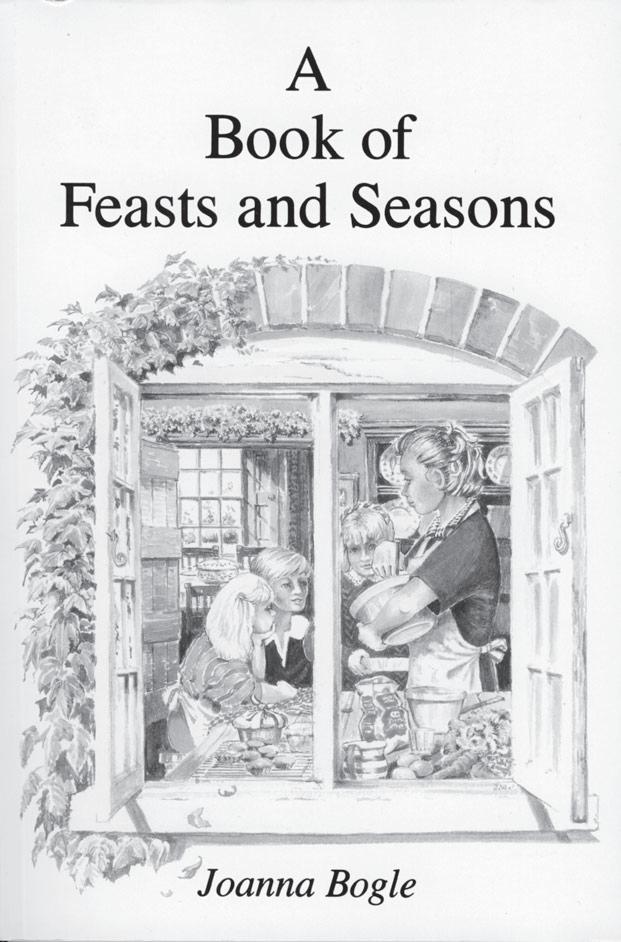
When it was first published in 1986 A Book of Feasts and Seasons was the first popular attempt to recapture the lost traditions surrounding our major feasts and festivals. Since then it has gone through several printings, and has become a well-loved source book all over the world.
The author has added a wealth of new celebrations, stories, activities and recipes and the book has been printed in a larger format to increase ease of use in home, church and school, while wholly new illustrations enhance the text. For every occasion of the Christian Year - from the traditional celebration of Michaelmass to making an Advent Wreath, from wassailing to the full story of St Wenceslaus - A Book of Feasts and Seasons remains an essential part of the family library.
Joanna Bogle is a well-known journalist and broadcaster. Her previous books include Caroline Chisholm: the Emigrants’ Friend; and Come on in - it’s Awful (about converts to the Church).
$24.95 + postage
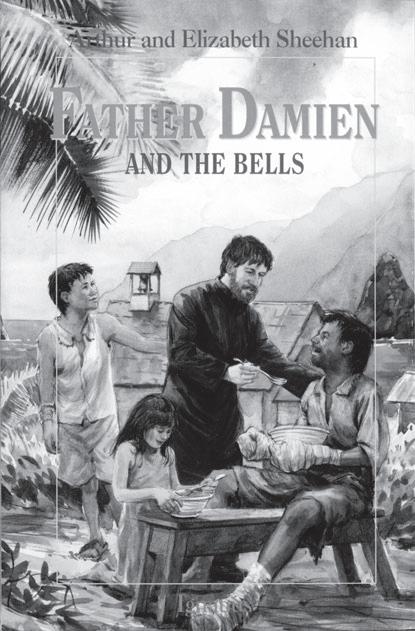
This volume on the acclaimed Vision Books series of Saints’ lives for youth aged 9-15 years old is the story of the saintly Fr Damien who, in 1872, went to the island of Molokai, where lepers had been exiled to live in miserable surroundings.
Damien earned the trust of the lepers, and his appeals for help resonated throughout the world. He spent his life caring for the needs of the outcast lepers, and even after Damien himself contracted leprosy he carried on working for his fellow lepers to the end. Illustrated.
“The Vision Books are splendid in design and also in format” - Catholic Standard Times
“The entire series of Vision Books is recommended for solid training of youth.”- The Tablet
Authors Arthur and Elizabeth Sheehan have both been teachers and are avid devotees of the life and work of Fr Damien.
$19.95 + postage
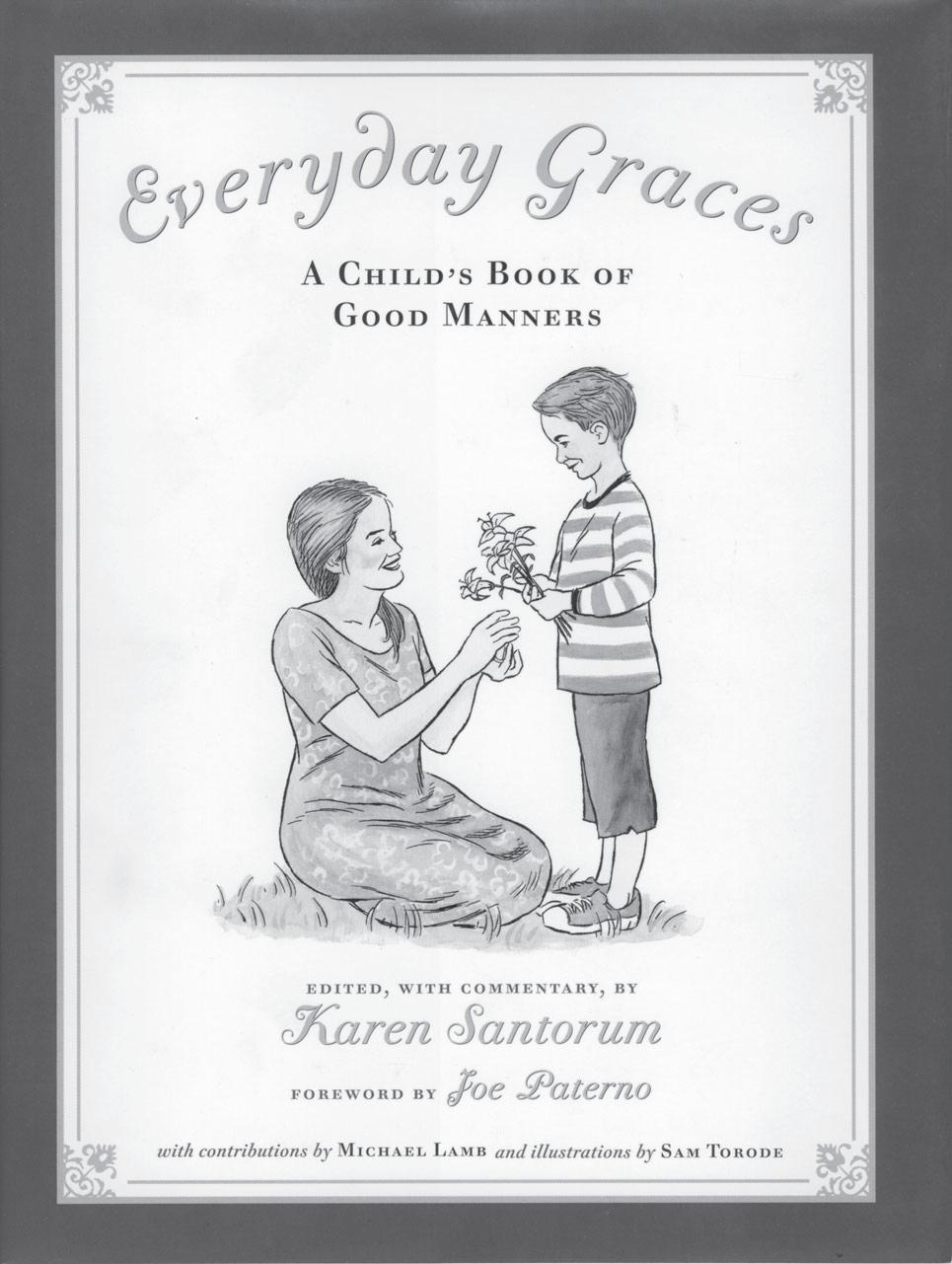

Everyday Graces grew out of Karen Santorum’s search for a book of manners that instructs through engaging stories and poems rather than dull lists of do’s and don’t’s.
The wonderfully rich and instructive anthology speaks to the fact that manners are seldom discussed anymore - and seem to be practised even less. Yet, good manners are vital for the growth of moral character: they are habits of conduct by which we express, in the most ordinary, day to day circumstances, our fundamental respect for others.
Under such headings as: ‘Honour your Mother and Father,’ ‘Please, Thank You and other Kind Words,’ ‘Be considerate at the Table,’ ‘Good sportsmanship’ and others, Mrs Santorum has arranged a collection of stories and poems that will develop and enrich the moral imagination.
Authors include the old and the new: Beatrix Potter, CS Lewis, Lucy Maud Montgomery, Mark Twain, and Arnold Lobel, to name a few.
Everyday Graces will be useful both as a bedtime book and as a reference for home, school and church library.
$30, hardback + postage
Michael Coren, an expert in the life and writings of CS Lewis, presents an engrossing biography for young people and adults of the man who created Narnia.
This biography, lavishly illustrated with numerous photos from the life of Lewis, is written in a captivating style that will appeal to all ages, youth and adults alike.
Starting with the “Beginings,” Coren tells the fascinating details of Lewis’s childhood and youth, one that was, in Lewis’s words “full of long corridors, attics explored in solitude, sunlit rooms and endless books.”
It continues with his studies at Oxford, subsequent celebrated teaching career, friendships with great writers like JRR Tolkien, Charles Williams, GK Chesterton and George Sayer, and his meeting and marriage to Joy Davidman and how he dealt with the sorrow of her death.
Michael Coren is a well-known radio and television broadcaster in Toronto, as well as a syndicated columnist.
$24.95 + postage

This volume on the acclaimed Vision Books series of Saints’ lives for youth combines a world-famous Catholic novelist, Louis de Wohl, with one of the most thrilling and dramatic saints’ lives in history - St Joan of Arc.
De Wohl uses his famed narrative skill to tell young people about the brave teenage French girl who had visions and led armies into battle, but also about how her entire life testifies to the amazing power of God’s grace.
It’s all here: how Joan, a humble maiden in an insignificant town, was told by St Michael the Archangel, St Catherine and St Margaret to lead the French in battle against the English, her betrayal, capture and death.
$19.95 + postage
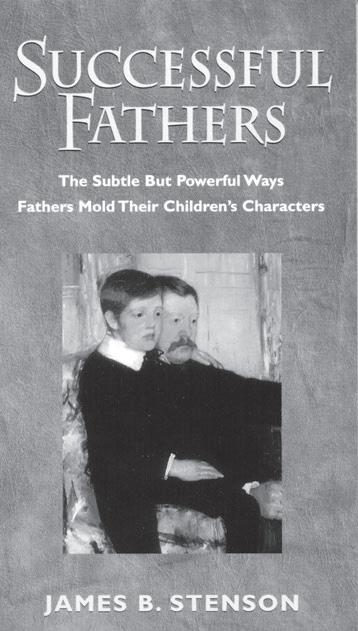
It’s one of the best things any father can read, James Stenson’s brilliant explanation of the subtle but powerful ways fathers mold their children’s character. An ideal gift for Dad, that can be great for children once he reads it. Helping men reclaim fatherhood’s nobility.
$7.95 + postage
Clint Eastwood’s new film raises interesting questions about the meaning of heroism.
■ By Justin MyersFlags of Our Fathers
Starring Ryan Phillippe, Jesse Bradford, Adam Beach
Having grown up in Washington DC, I have seen the Iwo Jima Memorial many times. The first time I gazed upon it as a youngster, I assumed that the massive statute not made from a real photograph. The eager troops working together to hoist that American flag seemed to be just an artist’s image of Allied veterans of Iwo Jima and, by extension, of all of World War II.
It was a terrible campaign, one of the most costly of the whole war for Marines. About 21,000 Japanese and 7,000 Americans died fighting over a patch of ground a third the size of Manhattan in February and March 1945.
The battle marked a turning point in the war because control of Iwo Jima (Japanese territory) allowed Allied forces to launch B-29 bomber raids into the heart of Japan. When I later learned that the statue had been modelled on Joseph Rosenthal’s Pulitzer Prize winning photograph, it became even more romantic.
Braving bullets and explosions on Mount Suribachi, six soldiers raise the American flag, a symbol of their nation’s noble cause. Each of them stretches to grab the flagpole and to be part of this event. Simultaneously, their comrades are wresting the island from the Japanese, yard by bloody yard. But logically, this frozen moment seemed improbable. More likely, I thought, the photograph had been staged or was taken long afterwards. Able-bodied men cannot afford to down weapons and erect a flag out in the open in the midst of a real battle. The mere raising of a flag, furthermore, means nothing in war without a victory to precede it. I

must have realised all of this. We all did. Didn’t we?
Flags of Our Fathers, Clint Eastwood’s latest film, adapted from the book by James Bradley and Ron Powers, explores the story behind this famous photograph. In truth, as revealed early in the movie, after a few days only three soldiers from the picture still survived. A great many more days elapsed and a great many more lives were lost before the marines actually secured Iwo Jima.
Though not a great film, Flags of Our Fathers is certainly a very good one, and it is fair to say that even in the twilight of his cinematic career old Clint is still a consummate artist. The movie follows the three survivors’ lives and illustrates what effect their status as a hero has on each of them. When Rosenthal’s photograph appears on front pages of newspapers across the country, the three survivors are plucked from the front lines and brought back to raise morale at home. Though each of them realises that his presence in the photograph was insignificant and accidental, they are soon
recruited to promote the sale of war bonds. John “Doc” Bradley (Ryan Phillippe in perhaps the performance of his career) remains ever cognisant that the real heroes lost their lives on the island. Rene Gagnon (Jesse Bradford) probably feels the same, but he also wants to milk his serendipitous fame for all he can. Meanwhile, the noble but tortured Ira Hayes (Adam Beach), a Native American, wears the label of “hero” as awkwardly as he holds his liquor. The battle scenes approach the brutal realism of Spielberg’s Saving Private Ryan. Just as Private Ryan displaced The Longest Day, starring John Wayne, as the definitive movie about D-Day in Normandy, Flags of our Fathers trumps The Sands of Iwo Jima, also starring the Duke. Unlike the exhausting opening sequence in Private Ryan, this film doesn’t linger in the trenches. It meanders from the battlefield to the home front to the present day. This provides a somewhat disjointed narrative, but places the famous photograph - which is the dramatic heart of the story - at exactly the right point in the film.
Few critics have noted that Flags of Our Fathers celebrates the art
of photography. A snapshot, taken almost as an afterthought, inspired people in a way no politician ever could. Rosenthal got the perfect shot on that hill that day. On a deeper level, however, the film raises questions about the notion of heroism.
What makes a hero? Who he is? What he does? What he represents to others? Should the greater good prevail over the awkward truth? This photograph was taken haphazardly and created a kind of contrived patriotism. The survivors were thrust unwillingly into the spotlight and used more or less as pawns of a morale-boosting publicity machine. All of this, however, injected a fresh optimism into a war-weary nation. If this final push enabled the Allied forces to win, ultimately saving lives on both sides wasn’t worth it?
Maybe the image of US marines raising the flag at Iwo Jima is more a stirring work of art than history. But I will cherish both interpretations: the romantic one and the realistic one, because our memories do not give us a choice in such matters. I also look forward to more quality films from Clint Eastwood. Justin Myers is a film reviewer and teacher of Latin and Greek in the Washington DC area.
The Eternal Word Television Network
On Access 31 every Sunday 1pm - 2pm
Coming Programs
November
12 Cloning, stem cell research and related issues / attorneys Nikolas Nikas and Dorinda Bordlee of the Bio-Ethics Defence Fund, with Fr Benedict Groeschel [Sunday Night Live]
19 Radical Feminism and its Consequences / Kate O’Beirne with Raymond Arroyo [World Over]
26 Authentic femininity: Women of Grace with Host Johnnette Benkovic [The Abundant Life]
December
3 Addictions / Fr J Corapi [Immortal Combat]
10 Family Retreat / Archbishop Fulton J Sheen with kind permission of the Fulton J Sheen Society Inc
17 Songs (including The Angelus with children) / Dana with guest Christopher Walker [Say Yes] Plus another half-hour program not yet selected
24 Our Lady of Guadalupe/Mother Angelica dancing with a Mexican Band
31 Feast of the Holy Family: G.K. Chesterton on the Christian family / Dale Ahlquist with the Panel [Franciscan University Presents]
Sunday November 26
CHRIST THE KING EUCHARISTIC PROCESSION
Schoenstatt Shrine, 9 Talus Drive, Armadale.
Invitation to all First Communion children who received Jesus for the first time in 2006 and their families to celebrate our friendship feast with Jesus. Please BYO afternoon tea to share. Enquiries: 9399 2349 or shrine@elink.net.au
Sunday November 26
SOLEMNITY OF CHRIST THE KING
Most Rev. Peter Quinn, retired Bishop of Bunbury, will preside over ceremonies to celebrate the Solemnity. Commencing 2pm at the Shrine of Virgin of the Revelation, 36 Chittering Road, Bullsbrook. Including: Exposition of the Blessed Sacrament, followed by a procession, Holy Mass and Consecration to the Sacred Heart, Christ the King. Ample parking and lawn areas available for picnics.
Enquiries: SACRI 9447 3292.
Friday December 1
PROLIFE PROCESSION MIDLAND
The first Friday Mass, procession and rosary vigil will be commencing at 9:30am with Mass celebrated at
St Brigid’s Church, Midland. The Franciscan Friars of the Immaculate will lead us. All are invited to witness for the sanctity of life and pray for the conversion of hearts. Enquiries: Helen 9402 0349
December 1 - 2
All Saints Chapel, Allendale Square, St Georges Terrace, Perth. Devotion to the Sacred Heart of Jesus on the first Friday of the month. Begins with Mass at 9pm followed by exposition of the Blessed Sacrament, rosaries, hymns, and prayers throughout the night on the hour, concluding on the first Saturday to the Immaculate Heart of Mary. Please come even for 1 hour. Enquiries: 9409 4543.
December 1 - 2
ALLIANCE AND TRIUMPH OF THE TWO HEARTS
All night vigil in reparation to the Two Hearts. Holy Mass 9pm Friday at St Bernadette’s Church, 49 Jugan Street, Glendalough. Followed by all night Eucharistic adoration with rosaries, hymns etc and silent adoration. All are welcome for any length of time. Concluding with Saturday Mass at 7:30am with Reconciliation available at 7am. Enquiries: Fr
Doug Harris 9444 6131 or Dorothy 9342 5845.
Saturday December 2 DAY WITH MARY
Our Lady of the Mission Church, 270 Camberwarra Drive, Craigie, 9am to 5pm. A video on Fatima will be shown at 9am. A day of prayer and instruction based upon the messages of Fatima. Includes Sacrament of Penance, Holy Mass, Eucharistic Adoration, Sermons, Rosaries, Procession of the Blessed Sacrament and Stations of the Cross. BYO lunch. Enquiries: Franciscan Sisters of the Immaculate 9250 8286.
Saturday December 2
EXPECTING MOTHERS MASS
An invitation to all expecting mothers and their families from 2 – 5 pm. 2pm Holy Mass, consecration and blessing of the unborn child followed by afternoon program. Please BYO afternoon tea to share. Enquiries: 9399 2349 or shrine@elink.net.au
Saturday December 2
WITNESS FOR LIFE PROCESSION
The next first Saturday Mass, procession and rosary vigil will be commencing with Mass at 8:30am at St Anne’s Church, Hehir Street, Belmont. We proceed
prayerfully to the Rivervale Abortion Centre and conclude with rosary led by Fr Paul Carey SSC. Please join us to pray peacefully for the conversion of hearts. Enquiries: Helen 9402 0349.
Sunday December 3
ANNUAL ROSARY PROCESSION
In honour of Our Lady of the Immaculate Conception at 2pm, St Joseph’s Church, Hamilton Street, Bassendean. Followed by Benediction of the Blessed Sacrament. In preparation a triduum of rosaries will be held on Wednesday November 29 at 7pm, Thursday November 30 at 7pm and Friday December 1 at 7pm including Mass. Enquiries: Jude Rodrigues 0408 541 459, Colin Caputo 9279 9750 or Renato Passamani 0419 924 633.
Sunday December 3
DIVINE MERCY
An afternoon with Jesus and Mary will be held at St Joachim’s Church, Corner Shepperton Road and Harper Street, Victoria Park at 1.30pm. Program: Holy Rosary and reconciliation, sermon with Fr Andre Maria FFI on the Holy Family followed by Divine Mercy prayers and Benediction. Enquiries:
■ BRICK REPOINTING
Phone Nigel 9242 2952.
■ PERROTT PAINTING PTY LTD
For all your residential, commercial painting requirements. Phone Tom Perrott 9444 1200.
■ PICASSO PAINTING
Top service. Phone 0419 915 836, fax 9345 0505.
■ REPAIR YOUR LITURGICAL BOOKS
REPAIRS to all sorts of books and leather bindings; reliable, reasonable rates. Ph. (08) 9293 3092
NOVEMBER
Classified ads:
■ ALL AREAS
Mike Murphy 0416 226 434.
■ CATHOLICS CORNER
Retailer of Catholic products specialising in gifts, cards and apparel for baptism, communion and confirmation. Ph: 9456 1777. Shop 12, 64-66 Bannister Road, Canning Vale. Open Mon-Sat.
■ DENMARK
Holiday House 3bdr x 2bath, sleeps up to 8. BOOK NOW. Ph: Maria 0412 083 377.
■ FAMILY/GROUP ACCOMMODATION
Luxury f/f beach house complex Perth. www. guadalupehill.com. 0400 292 100.
■ PRAYER
With heartfelt thanks and deepest gratitude for answered prayers 4 times over. With God all things are possible. Holy Spirit you who makes me see everything and shows me the way to reach my ideas, you who give me the divine gift to forgive and forget all the wrong that is done to me and you who are in all instances of my life with me, I, in this short dialogue want to thank you for everything and affirm once more that I never want to
24 Presentation of LifeLink Day cheque from St Simon Peter Primary School, Ocean Reef - Archbishop Hickey
Principals’ Thanksgiving Mass, CEO Chapel - Archbishop Hickey
25 10th Anniversary Mass for Pregnancy Assistance, John XXIII Chapel - Archbishop Hickey
70th Anniversary of St Thomas’ Church, Claremont - Archbishop Hickey
Breakfast for International Day for the Elimination of Violence Against Women - Michelle Wood
26 - 1 Bishops’ Conference, Sydney - Archbishop Hickey, Bishop Sproxton
DECEMBER
1 Ordination to Presbyterate for Redemptoris Mater Seminary, Balcatta - Archbishop Hickey, Bishop Sproxton
2 Annual WACRI Mass for all Religious, Como - Archbishop Hickey
3 Mass at Bandyup Prison - Archbishop Hickey
Mass to celebrate Emmanuel Centre’s 25th anniversary - Archbishop Hickey
5 Annual Mass for Catholic Pastoral Centre - Archbishop Hickey
Gathering for Permanent Deacons - Archbishop Hickey, Bishop Sproxton
be separated from you, no matter how great the material desire may be. I want to be with you and my loved ones in your perpetual Glory. (mention your request here). Thank you, Holy Spirit for your love towards me and my loved ones. Amen. This prayer is to be said for three consecutive days.
■ IRISH ECHO NEWSPAPER
Give your friend or relative the Gift that lasts a year. A subscription to Australia’s only Irish newspaper costs just $80, we’ll even send them a card for you. Call 1300 555 995 (Toll-free) or email: sueb@irishecho.com.au. www.irishecho.com.au
6 LifeLink Committee end-of-year meeting - Archbishop Hickey, Bishop Sproxton
Blessing of extensions and Board Meeting at The Living Centre - Archbishop Hickey
7 Council of Priests meeting, Glendalough - Archbishop Hickey, Bishop Sproxton
Catholic Marriage Education Services end-of-year gathering - Archbishop Hickey
8 Meeting of AGLOW - Archbishop Hickey
Novena Mass, 7.30 pm St Joachim’s - Archbishop Hickey
10 Embrace the Grace Closing Mass, New Norcia - Bishop Sproxton
11 Mass to celebrate 125th Anniversary of Salvatorian Foundation, Greenmount
- Archbishop Hickey, Bishop Sproxton
12 Mass to celebrate 175 years of Mercy Foundation and 160 years of Perth Congregation
Foundation, Lesmurdie - Archbishop Hickey
Heads of Churches meeting - Bishop Sproxton
13 Mass for Fulton Sheen Society, Trinity College Chapel - Archbishop Hickey
Thanksgiving Mass for National Civic Council and Australian Family Association Leederville - Archbishop Hickey
Reconciliation, Willetton Parish - Bishop Sproxton
John: 9457 7771 or Linda 9275 6608
Sunday December 3
ANNUAL ROSARY PROCESSION
In honour of Our Lady of the Immaculate Conception, 2pm, St Joseph’s Parish Church, Hamilton Street, Bassendean. Followed by Benediction. In preparation a tridiuum of Rosaries will be held: Wednesday November 29, 7pm, Thursday November 30, 7pm and Friday December 1, 7pm. Enquiries: Jude Rodrigues 0408 541 459, Colin Caputo 9279 9750 or Renato Passamani 0419 924 633.
Tuesday December 5
CHARISMATIC RENEWAL MASS
Catholic Charismatic Renewal end-of-year Mass celebrated at Holy Family Church, Cnr Canning Hwy/Thelma St, Como. Commencing 7pm with Prayer & Praise. Evening concludes with a light supper (approx 9.30pm). Please bring a plate (finger food) to share.
Wednesday December 8
MASS IN HONOUR OF BLESSED MARY MACKILLOP
At 6pm, Sisters of St Joseph Chapel, 16 York St, South Perth. Everyone welcome. Also now available Josephite/Mary MacKillop 2007 Calendar with inspirations from the writings of Blessed Mary MacKillop. Contact 9334 0999.Friday
December 8
PREGNANCY ASSISTANCE ANNUAL THANKSGIVING MASS
All are invited to attend our Annual Thanksgiving Mass and to celebrate our 10th year in this service of the apostolate of life at 7.30pm,St Mary’s Church, Cnr Franklin & Shakespeare Sts, Leederville. Light supper provided in the parish hall. RSVP Ph 9329 2929.
Friday December 8 HOUR OF GRACE
Feast of the Immaculate Conception. Please join us in the hour of grace between 12noon and 1pm at Holy Spirit Church, Keaney Place, City Beach. Exposition of the Blessed Sacrament, rosary and quiet time in the hour.
Sunday December 10
CHRISTMAS ADVENT PILGRIMAGE
Come join us in prayerful preparation for Christmas. Assemble at Armadale Train Station 11.45am to noon Angelus and Rosary Walk to Schoenstatt Shrine for Holy Mass, BYO picnic lunch and Christmas presentation with Sister Lisette. 3pm Divine Mercy and Benediction with return Rosary walk to Armadale station. Home by 5pm. A family day in preparation for Christmas.
December 12 to 15
PARISH MISSION KALAMUNDA
Fr Brian and Sr Ngaire Roil, the Directors of Spirituality Centre, Perth Archdiocese will lead Parish Mission in Holy Family – Kalamunda Parish 7.30-9pm. The theme of the mission is “People of Advent”. Second Rite of Reconciliation will be celebrated on Thursday night. All are welcome.
Wednesday December 13
FULTON J SHEEN SOCIETY MASS
Archbishop Barry Hickey Celebrant. Trinity College Chapel 10am. Followed by Lecture “Archbishop Fulton J Sheen The Complete Apostle. Is his legacy appropriate for today?” Delivered by Fr Scott Armstrong, Vianney College Wagga Wagga. All welcome. Enquiries: 9291 8224 or email sheensociety@globaldial.com
DIVINE MERCY
Every Saturday afternoon at St Francis Xavier’s Church, 25 Windsor Street, East Perth from 2.30pm. Holy Hour will be held with exposition of the Blessed Sacrament, Holy Rosary and Divine Mercy Chaplet and prayers plus Reconciliation and Benediction. A Holy Mass is also held every second Saturday including Sacrament of Healing. Enquiries: John: 9457 7771 or Linda 9275 6608.
TUESDAY NIGHT PRAYER MEETINGS
St Mary’s Cathedral Parish Centre, 450 Hay Street, Perth, 7pm. Come join us! Overcome the burdens in life making prayer your lifeline with Jesus. Personal healing in prayer, Rosary, meditation, Scripture, praise in song, friendship, refreshments. Be united with Our Lord and Our Lady in prayer with others. Appreciate the heritage of the Faith.
First Sunday of the Month
DEVOTIONS IN HONOUR OF THE DIVINE MERCY
The Santa Clara Parish Community welcomes anyone from surrounding parishes and beyond to the Santa Clara Church, corner of Coolgardie and Pollock Sts, Bentley on the 1st Sunday of each month. The afternoon commences with the 3 o’clock prayer, followed by the Divine Mercy Chaplet, Reflection and concludes with Benediction.
BLESSED SACRAMENT ADORATION
Holy Family Church, Alcock Street, Maddington. Friday 8.30am Holy Mass followed by Blessed Sacrament Adoration till 12 noon. Every first Friday of the month, anointing of the sick during Mass. Enq. 9398 6350.
Every Friday
Bible Study & Novena to God, Our Father. Every Friday, 7pm at All Saints Chapel, Allendale Square, Perth. Bible study on Genesis followed by Novena to God, Our Father, both conducted by Fr Douglas Rowe. Enquiries to Yit 9310 1392, 0432 344 570, 0401 674 302.
Wednesdays SIGN LANGUAGE COURSE
Australian Sign Language (Auslan) Classes are offered free of charge at Emmanuel Centre on Wednesdays at 1pm. If this does not suit you, other arrangements can be made. Please contact Fr Paul or Barbara at Emmanuel Centre, 25 Windsor St Perth 9328 8113.
QUEEN OF APOSTLES SCHOOL
If anyone has information on Queen of Apostles School, Riverton, used to go there or knows anyone who did please do one of the following to tell the extension group – Call 9354 1360 and ask to speak to Veronique or email your information to veronequeregnard@gmail.com.au or janellekoh@yahoo.com.au or you can put your information into the box in the office at Queen of Apostles School. Thanking you in anticipation.
ST COLUMBA’S BAYSWATER
Information is sought from past and present parishioners of St Columba’s Catholic Church (Roberts St Bayswater) for inclusion in a written history (1905 – 2007) of the parish. Photographs of Parish Priests, parishioners and events depicting the original and current Church greatly appreciated. Contact: Carolyn Kelly, St Columba’s History, PO Box 47 Bayswater 6053 WA. Telephone: 9271 1988.
ALCOHOLICS ANONYMOUS
Is alcohol costing you more than just money?
Alcoholics Anonymous can help. Ring 9325 3566.
ATTENTION COUPLES
Have you or your spouse been diagnosed with a mental illness? Depression? Anxiety/Panic Attacks? etc. Could you do with some help in understanding your/their illness? Do you know how to get help when you need it? We can help you to help each other through the Unconditional Love Program. For more information contact Amanda Olsen: 0407 192 641, or email: mandyfolsen@bigpond.com.au.
Panorama entries must be in by 5pm Monday. Contributions may be faxed to 9227 7087, emailed to administration@therecord.com.au or mailed to PO Box 75, Leederville, WA 6902. Submissions over 55 words will be excluded. Inclusion is limited to 4 weeks. Events charging over $10 constitute a classified event, and will be charged accordingly.
The Record reserves the right to decline or modify any advertisment.
 ■ By Patricia Zapor
■ By Patricia Zapor
With an estimated 1.2 billion followers, Islam is the second largest religion in the world. Islamic organisations say there are an estimated six million to seven million Muslims in the United States; of those, 85 per cent are US-born.
Islam draws its name from the Arabic terms for peace and loving submission to God’s will. Its followers consider it to be both a religion and a guide for a complete way of life.
Historic records of Islam date from the time of the prophet Mohammed, who was born in Mecca, in what is now Saudi Arabia, in 570. Beginning at age 40, he began receiving revelations from Allah, the Arabic word for God, through the angel Gabriel. These revelations received over the course of 23 years were compiled during Mohammed’s lifetime in a book known as the Quran.
Christians in the Bible through the time of Jesus.
They recognise a chain of many prophets - a great number of them familiar to Christians and Jews. The Quran refers to 25 prophets, and treats Noah, Abraham, Moses, Jesus and Mohammed as the most significant.
The Quran considers Jesus one of God’s greatest messengers to humankind, acknowledging his virgin birth and the miracles he performed.
Islam does not recognise Jesus as the son of God. However, it regards his mother, Mary, as the purest woman in all creation.
In fact, the Quran contains more passages about Mary than does the New Testament.
Followers of Islam emphasise its laws over theology and religious practice over belief.
These laws - known as Shariah - are based on the Quran as well as tradition.
These traditions are derived from Mohammed’s words and deeds, known as the Sunna.
The Sunna includes reports from Mohammed’s companions about his life. Different groups of Muslims place varying importance on these reports.
For instance, Sunni Muslims, who make up between 85 and 95 per cent of the Islamic population, give it different merit than do Shiite Muslims, the next largest group
own “zakat” based on certain principles.
Fasting. Muslims are obligated to abstain from food, drink and sex from first light until sundown during the Islamic calendar’s month of Ramadan.
Pilgrimage. A pilgrimage, or “hajj,” to Mecca, Islam’s holiest city, at least once in a lifetime is considered obligatory for those who are physically and financially able to make the trip.
Like Christians, Muslims believe God forgives sins. The Quran contains many passages about the mercy of God. Muslims also believe in a judgment day, resurrection, heaven and hell and angels.
Unlike Catholicism and other Christian denominations, Islam has no central authority structure.
Religious scholars and others educated in the Quran provide guidance and may issue legal opinions, known as “fatwas,” about specific issues, but all individuals are not under any religious obligation to follow them.
In some countries, civic law is derived from political leaders’ interpretation of Islamic law and therefore is broadly enforced.

Among the elements of Islam that may seem confusing or exotic to contemporary Christians are its rules about diet and dress and its approach to marriage.
Dietary rules include a prohibition on eating pork, animals that were not killed in the proper way and products made with any animal’s blood. Alcoholic beverages also are forbidden.
As for wardrobes, men and women are expected to dress in a modest and dignified way. In many places, this is defined for women as meaning their hair should be covered and their clothes should cover them from the neck to the knees.
In some Islamic cultures, women are required to wear a full-length robe called a “chador’’ and a facecovering veil. In others, Muslim women may choose to dress no differently than their non-Muslim contemporaries.
Likewise, Muslim men sometimes are required to wear beards and head coverings, depending upon the local culture.
Muslim marriages consist of a legal agreement in which either partner is allowed to include conditions. Divorce is not common, but
in some countries there are different rules for men and women about how to divorce a spouse. Even very early Islamic laws specifically protected the wife financially in case of divorce.
Islam permits men to take more than one wife under certain circumstances, including that the first wife must agree and local law allows it.
Another Islamic term that has been widely used but little explained is “jihad.” The word “jihad” means struggle and can apply to any kind of daily effort to please God.
Muslims believe among the highest levels of “jihad” are the internal struggle against wrongdoing and bearing witness to the faith.
In some uses of the word, “jihad” and spiritual discipline are similar in meaning.
Islamic scholars say the type of “jihad” in which arms are taken up in defence of Islam or a Muslim country can only be declared by the religious leadership or a Muslim head of state who is guided by the Quran and the Sunna.
There is great debate within Islam about whether anyone is qualified to invoke this kind of “jihad” today. CNS
Muslims believe the Quran contains the exact words of God, conveyed in Arabic. Muslim scholars around the world study its text in Arabic, because translations are not considered to be 100 per cent accurate.
Islam’s origins are generally the same as those of Christianity and Judaism. They share many of the same prophetic revelations - for instance, Abraham’s message that there is but one God. Muslims believe Islam was founded by Allah and is a reiteration of events known to Jews through the Torah and to
Common to all Muslims, however, are five fundamental obligations, known as the five pillars of Islam.
They are:
Profession of the faith. Simply, “there is no God but God, and Mohammed is his messenger.”
Worship. Specifically, five-timesa-day prayers known as “salat.” These prayers may be said at a mosque or wherever else is convenient, but preferably in community with other Muslims.
Almsgiving, known as “zakat,” which means purification and growth. Each Muslim calculates his





